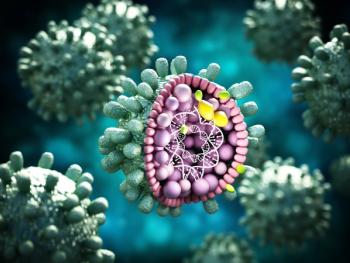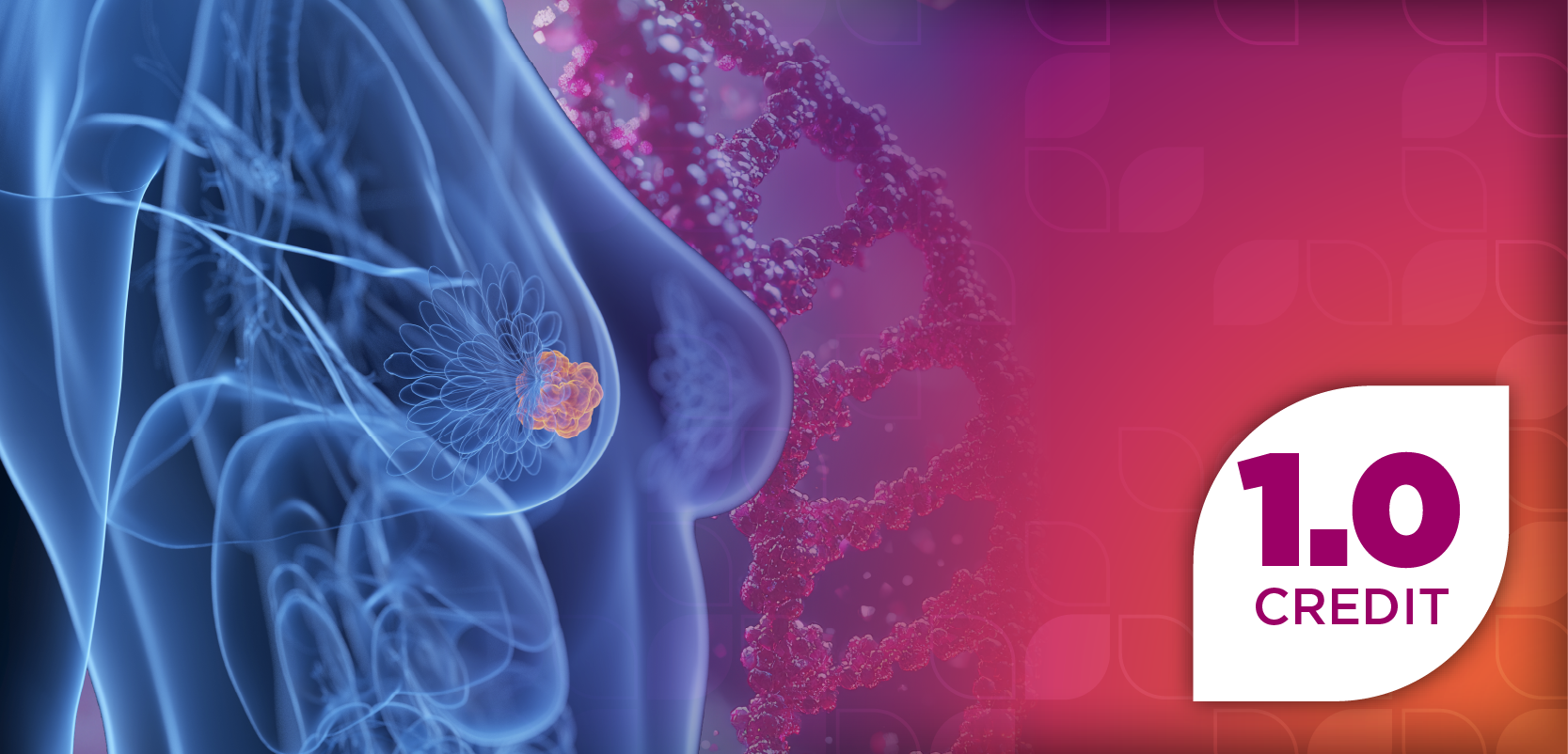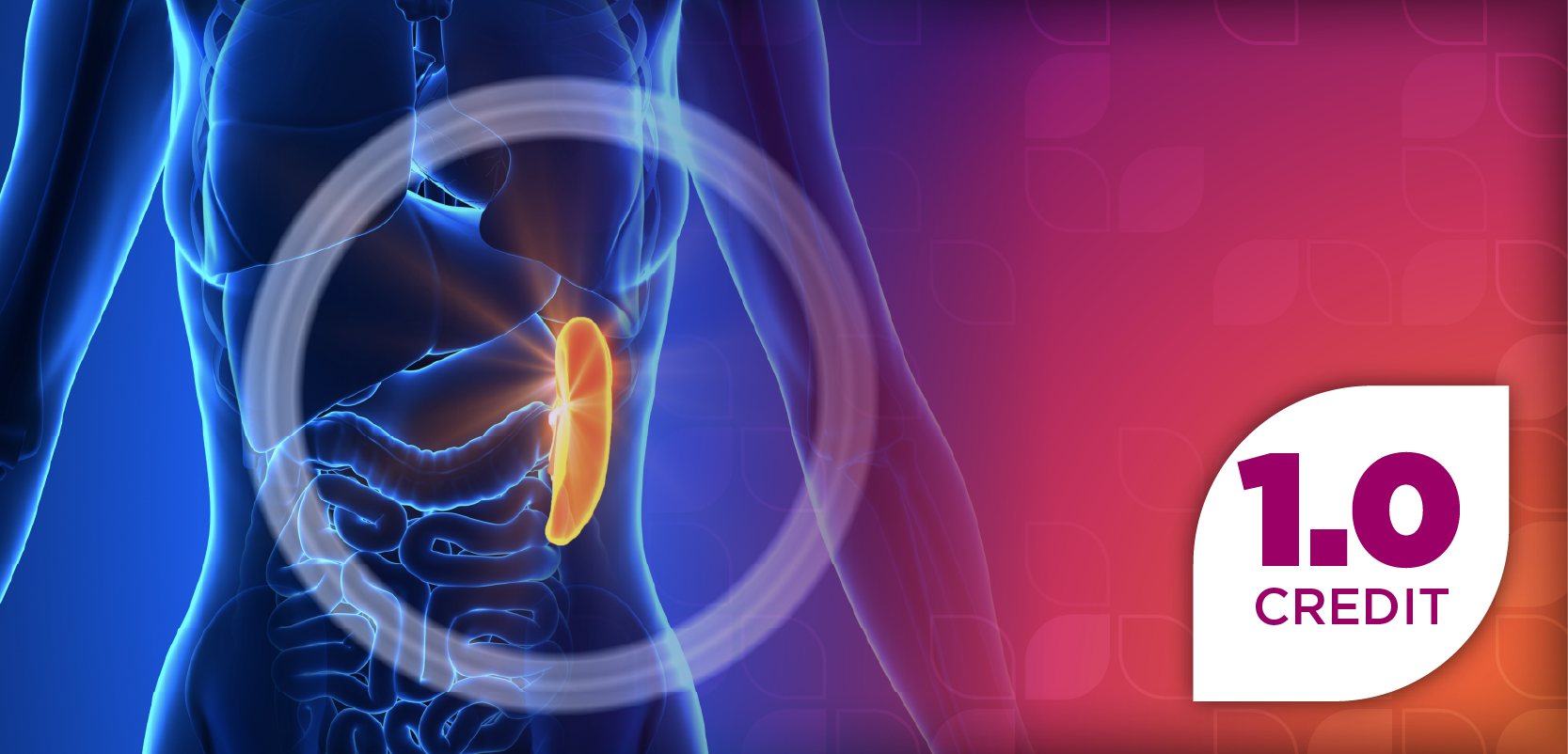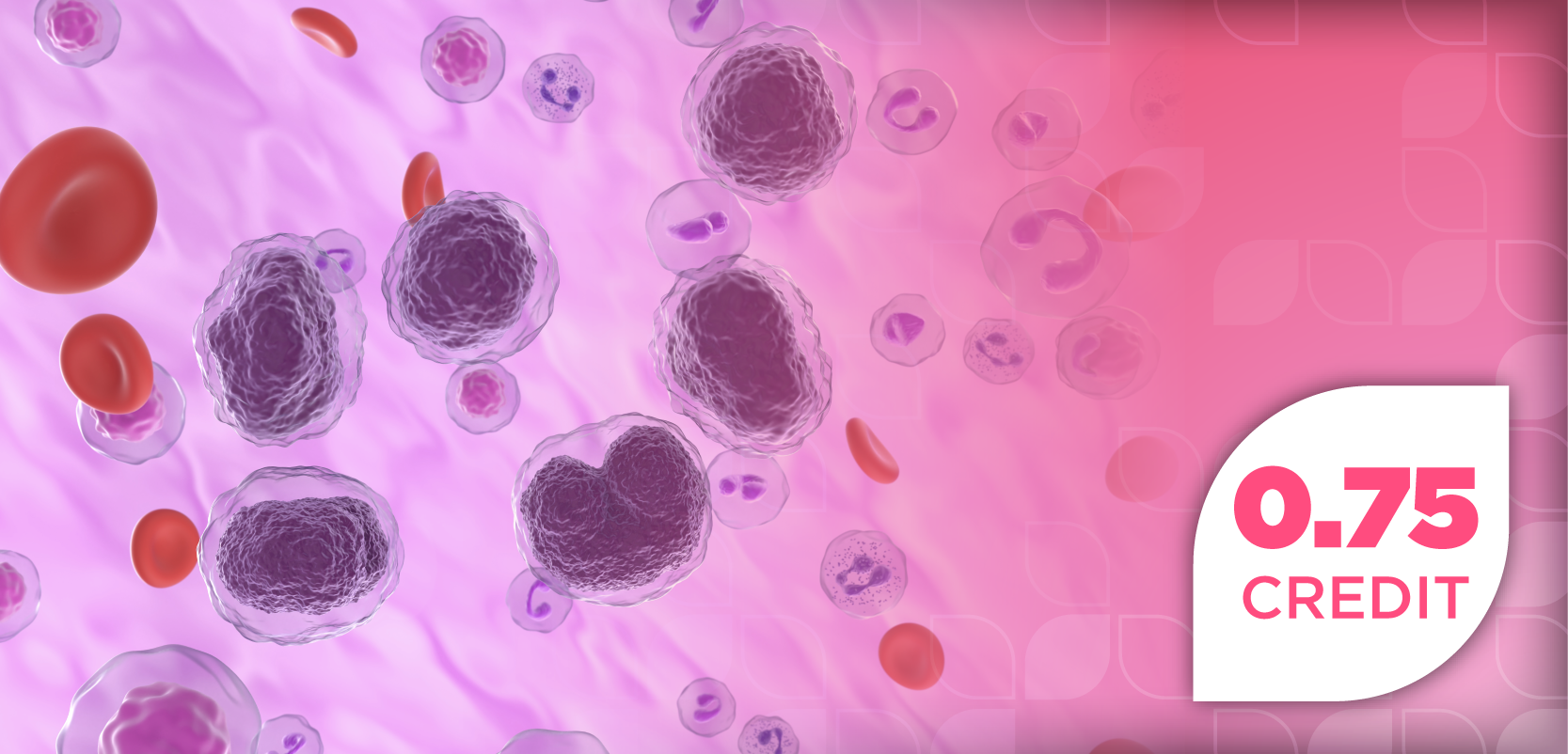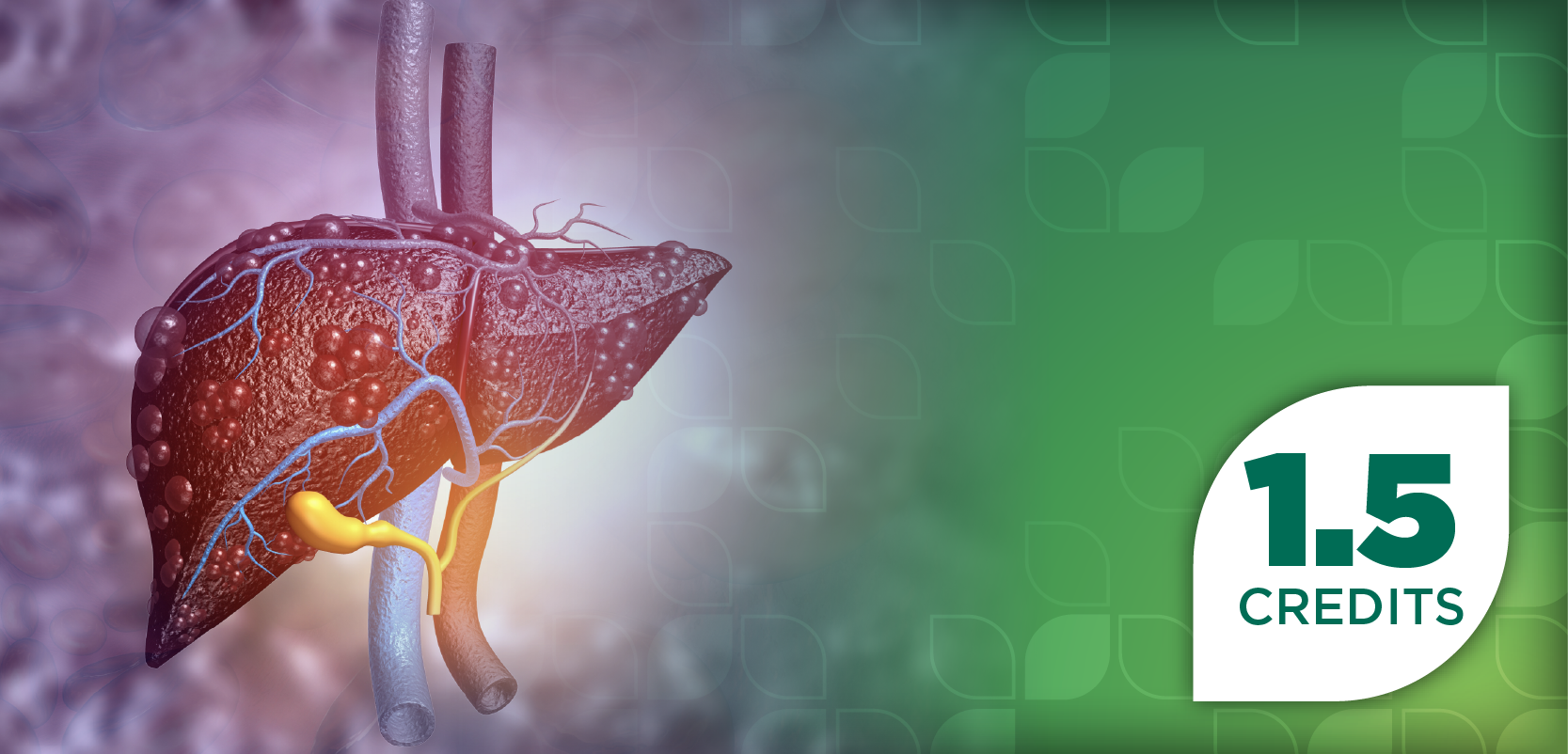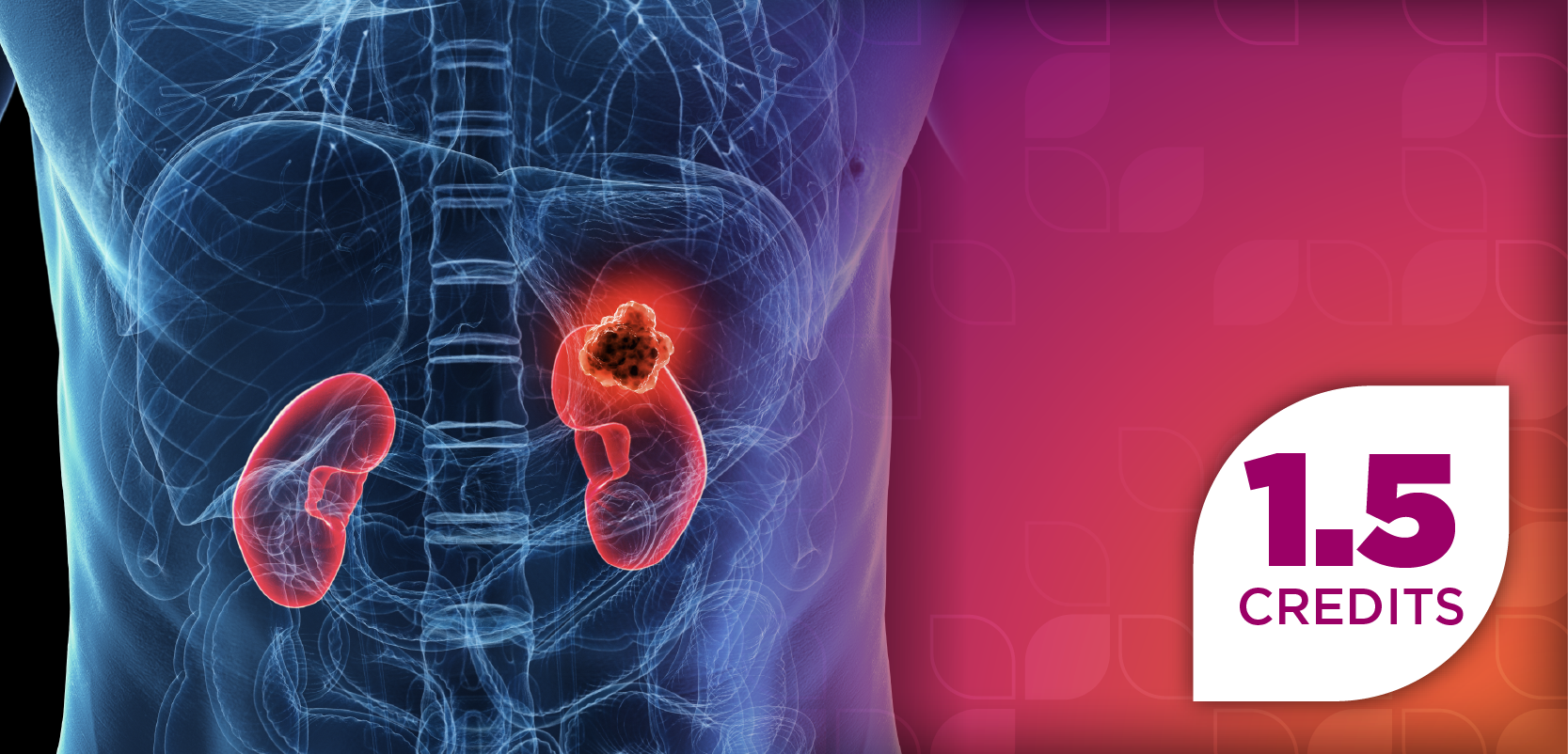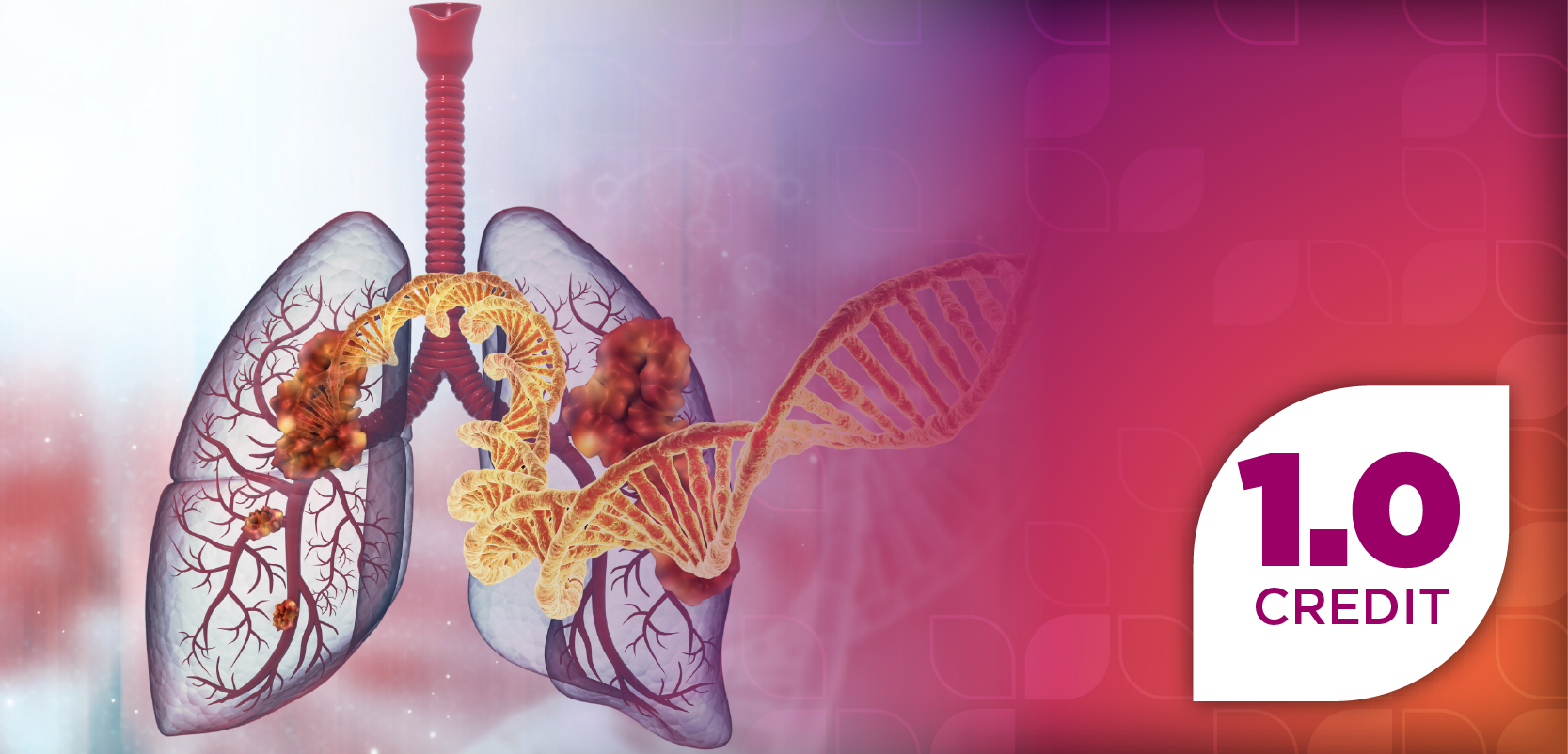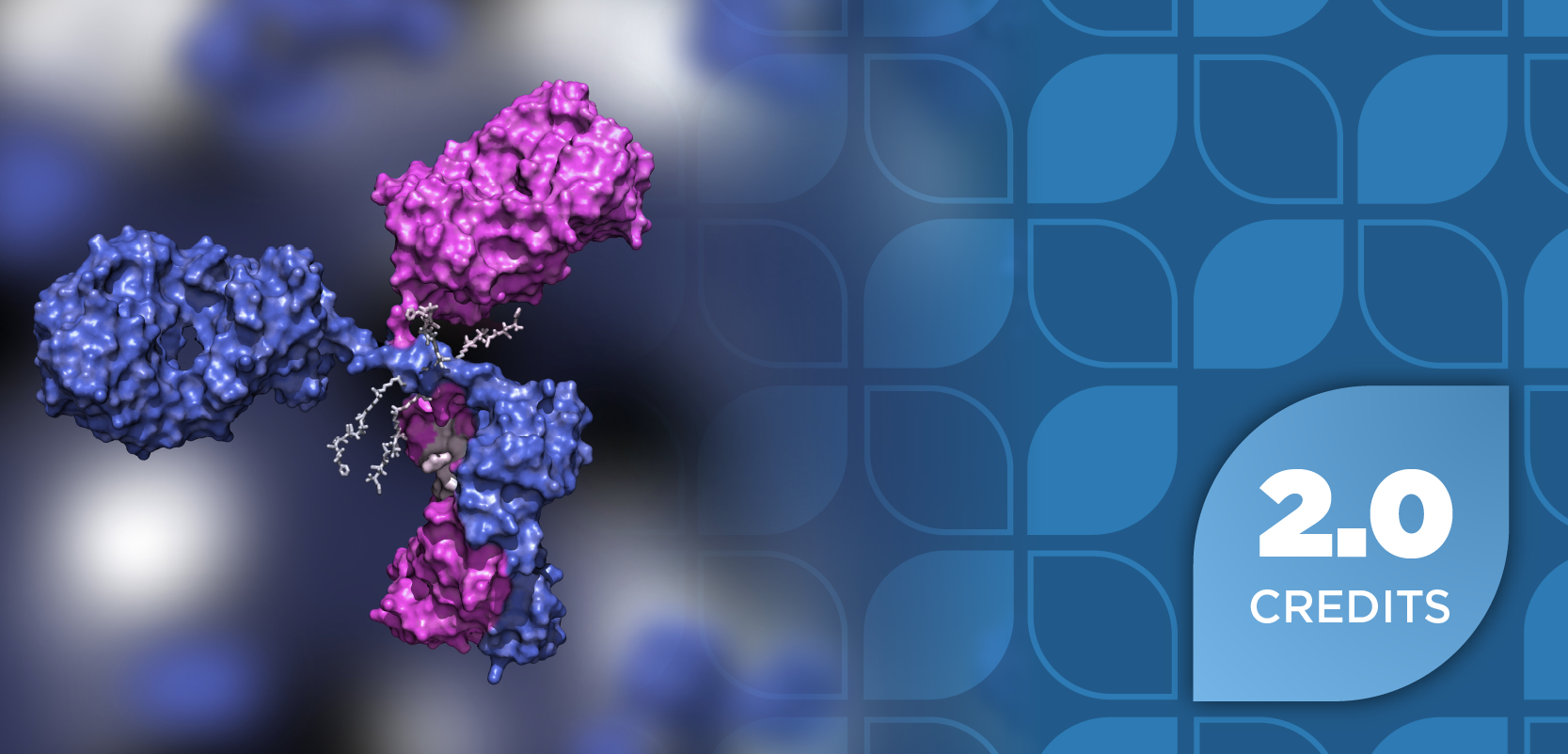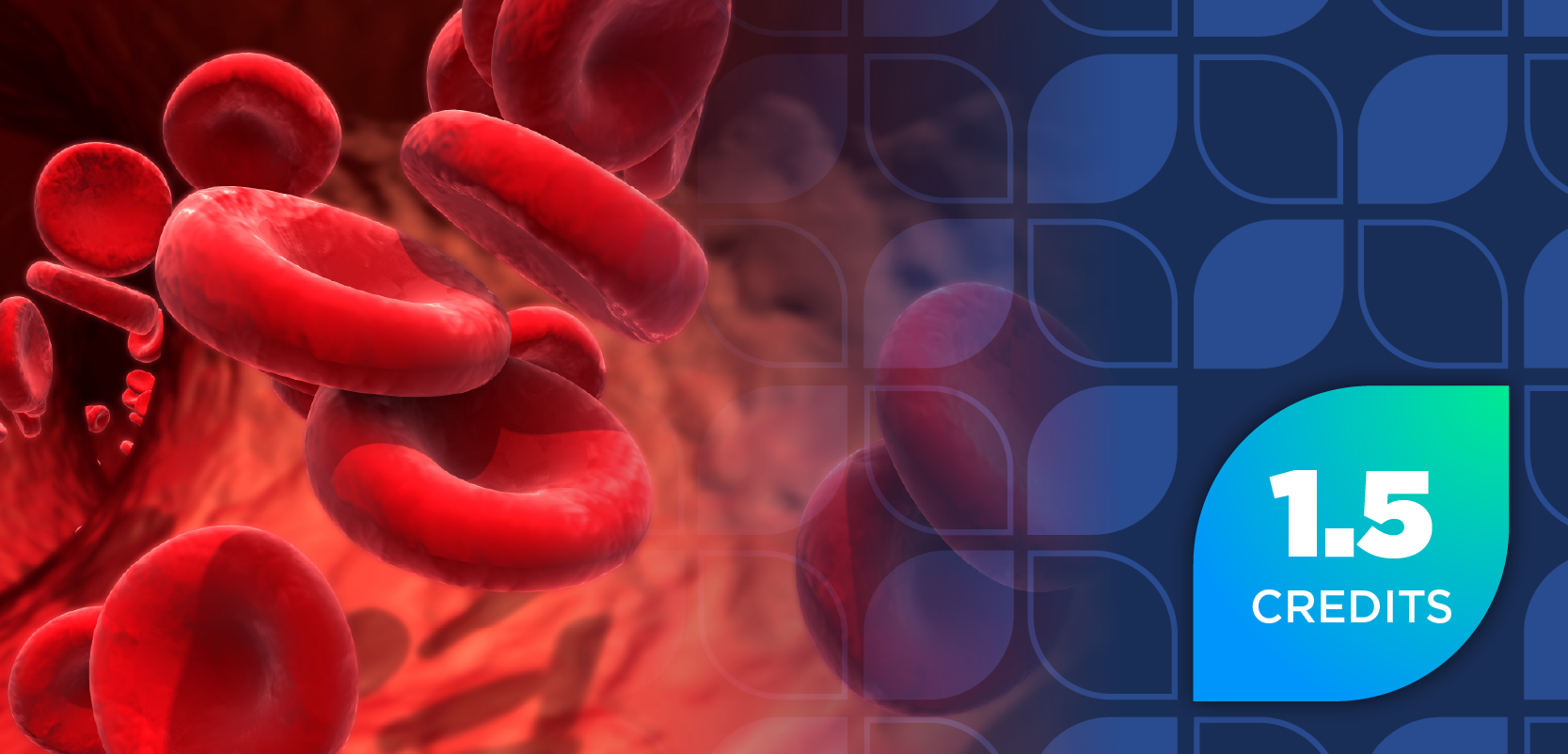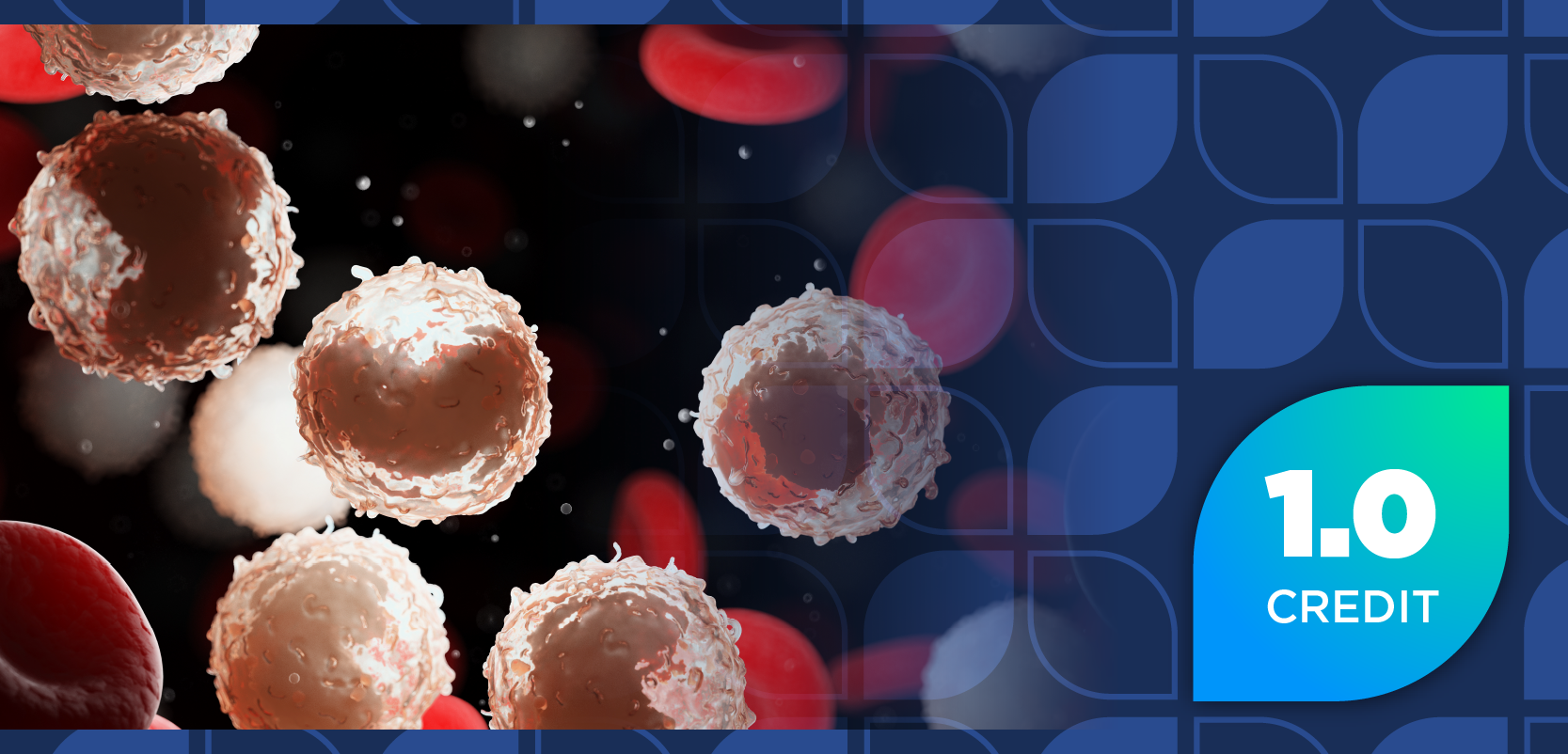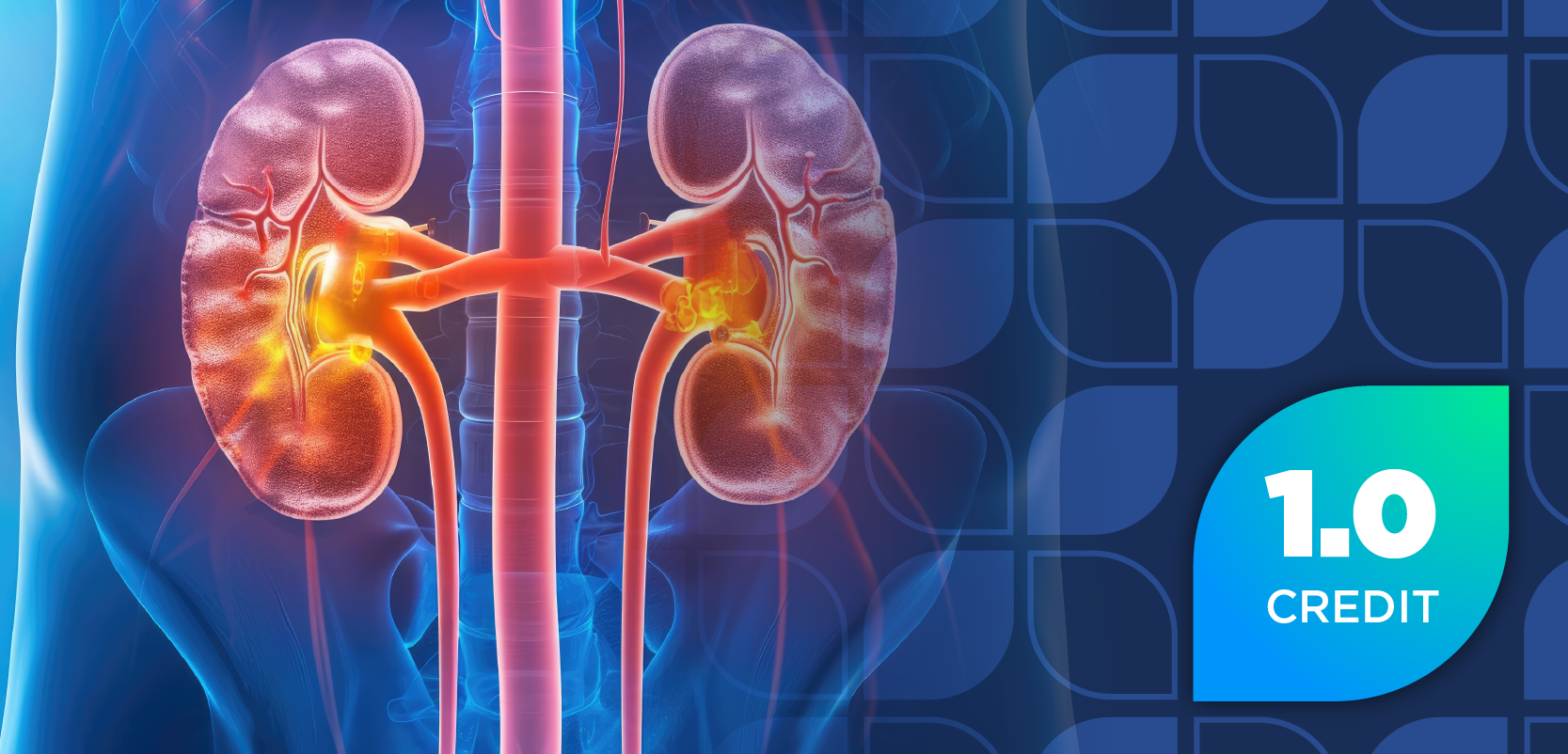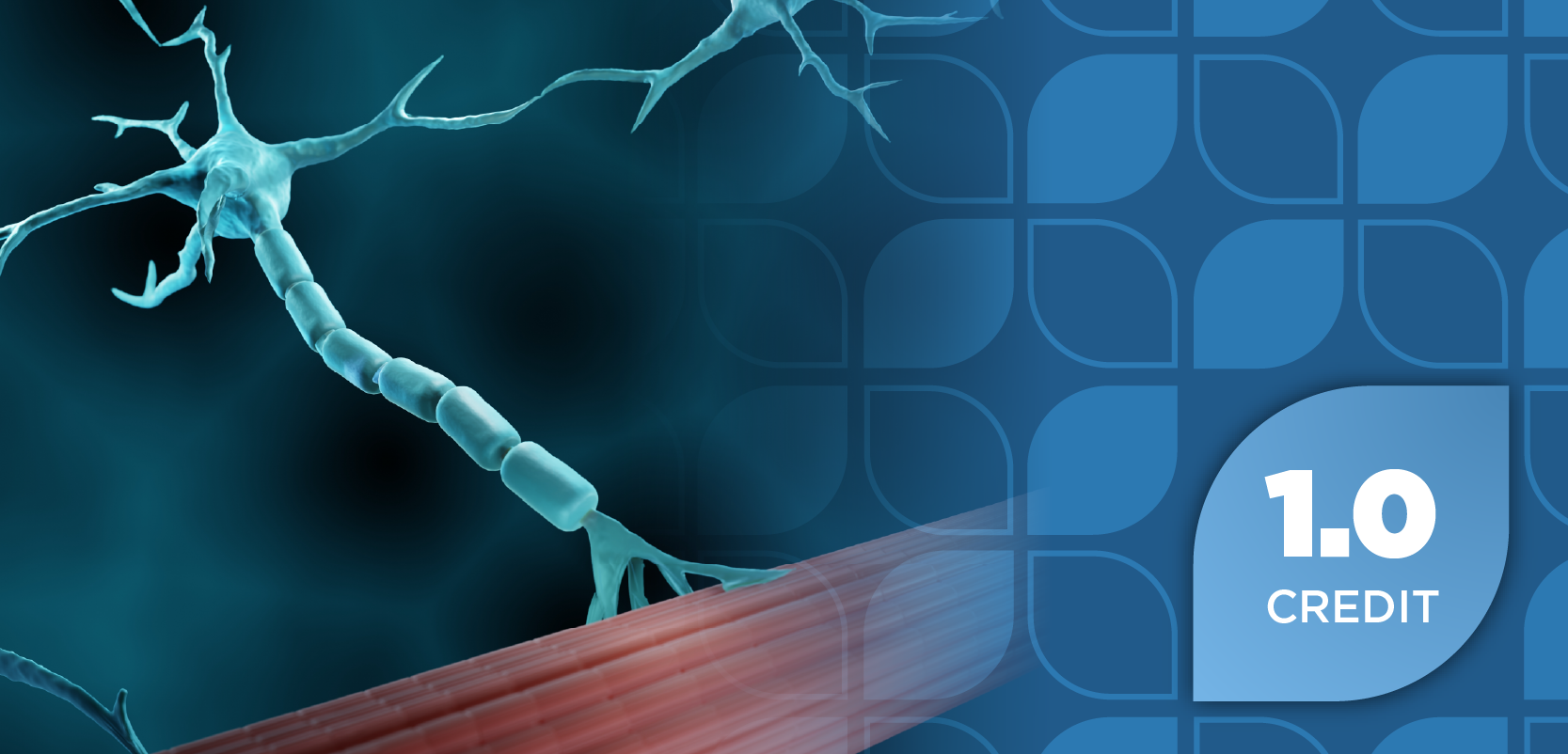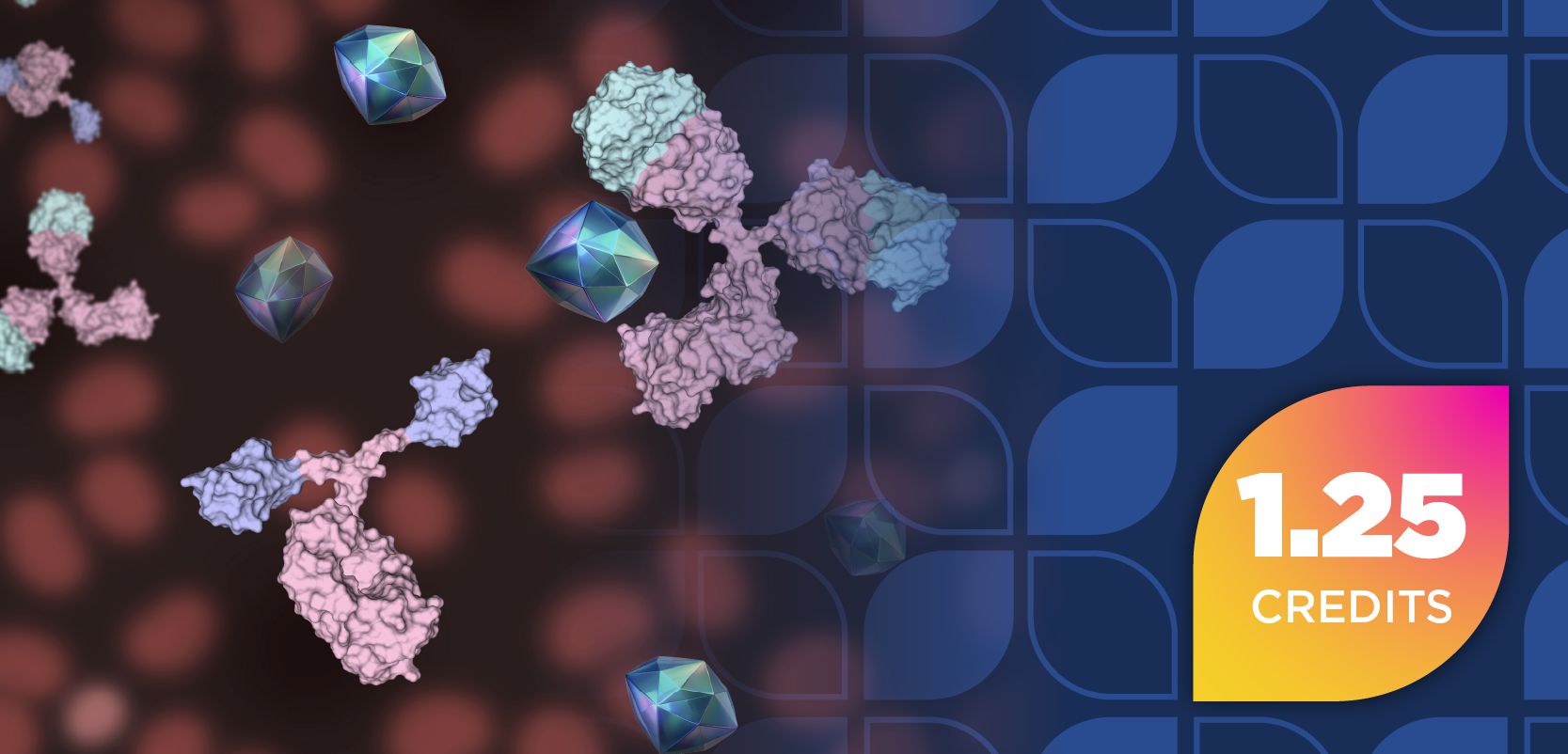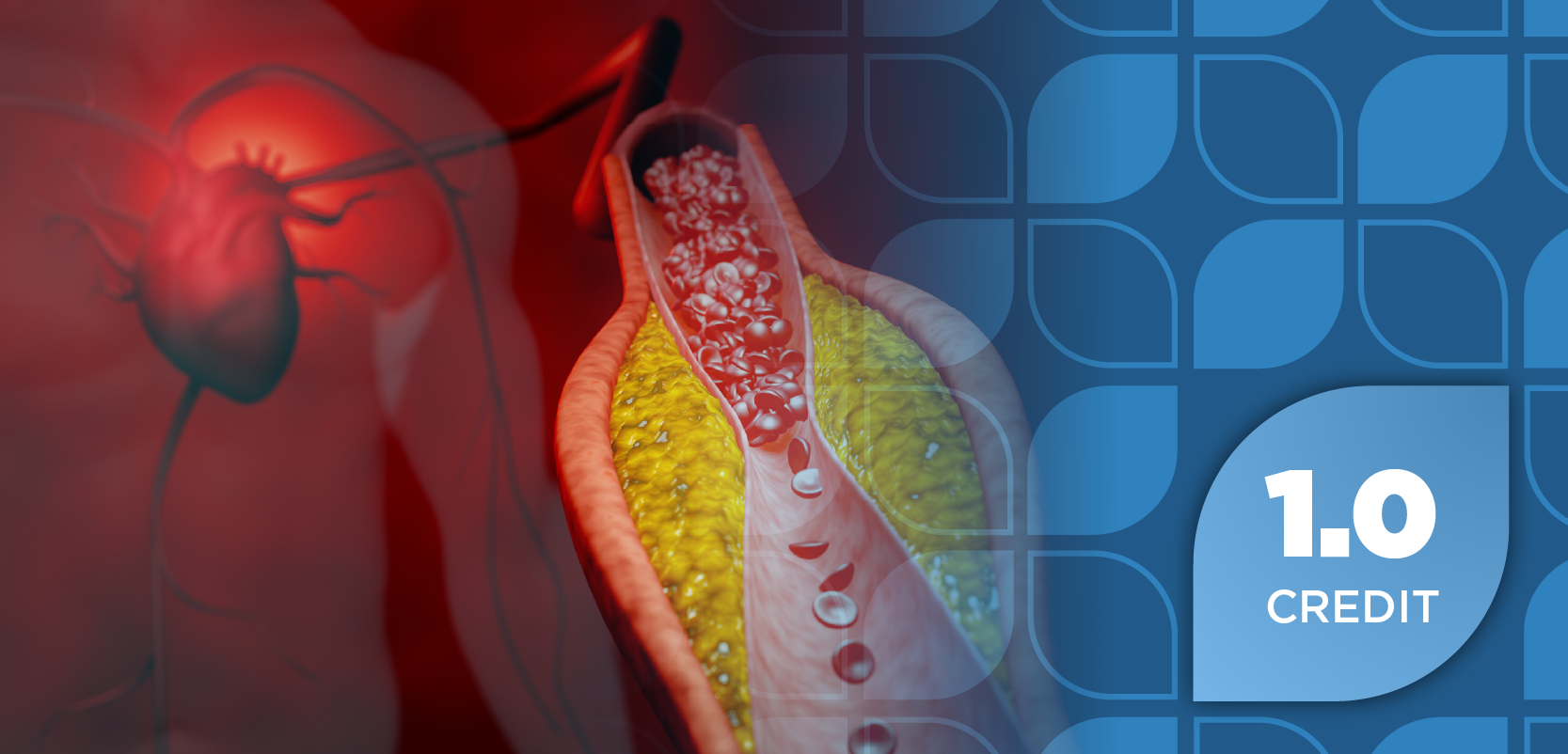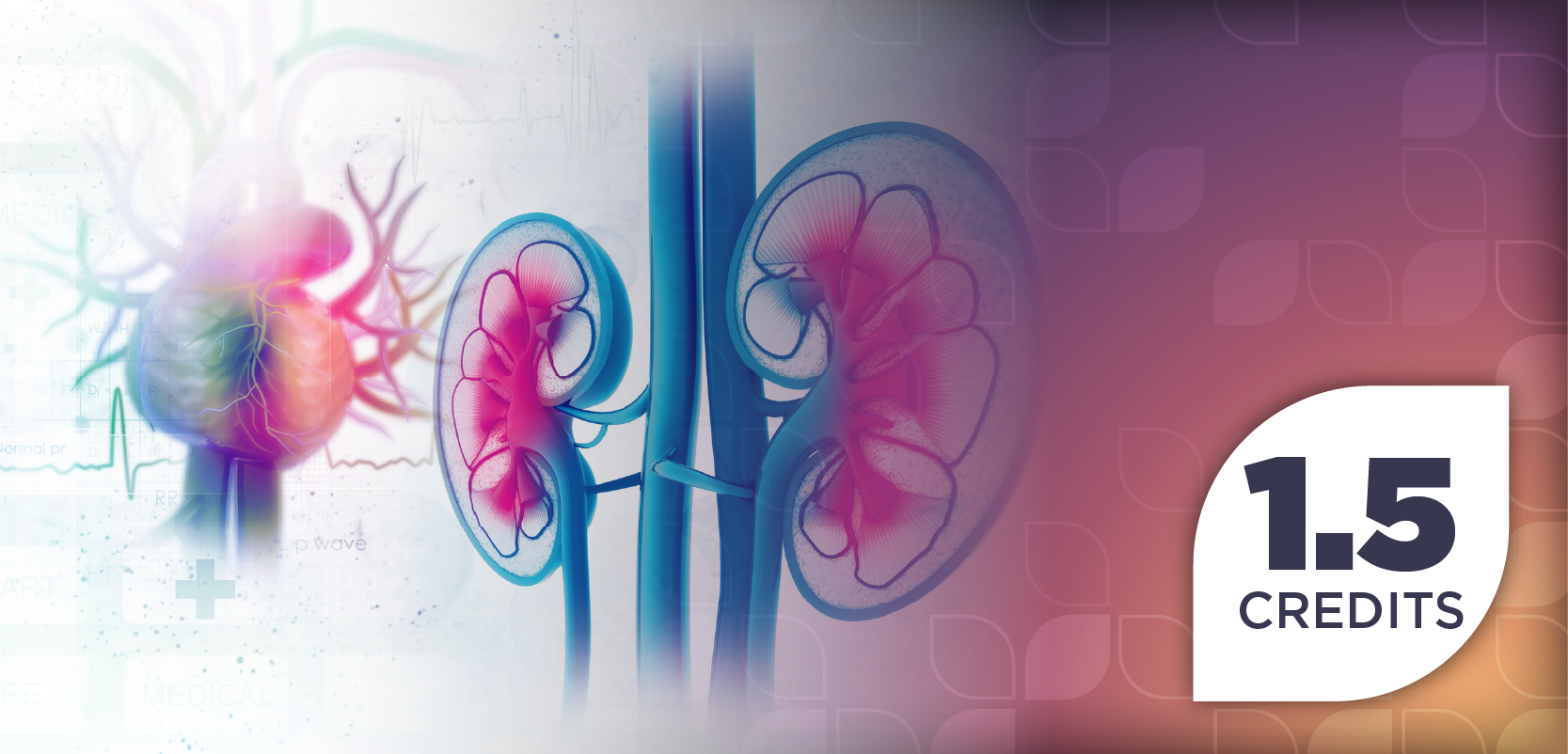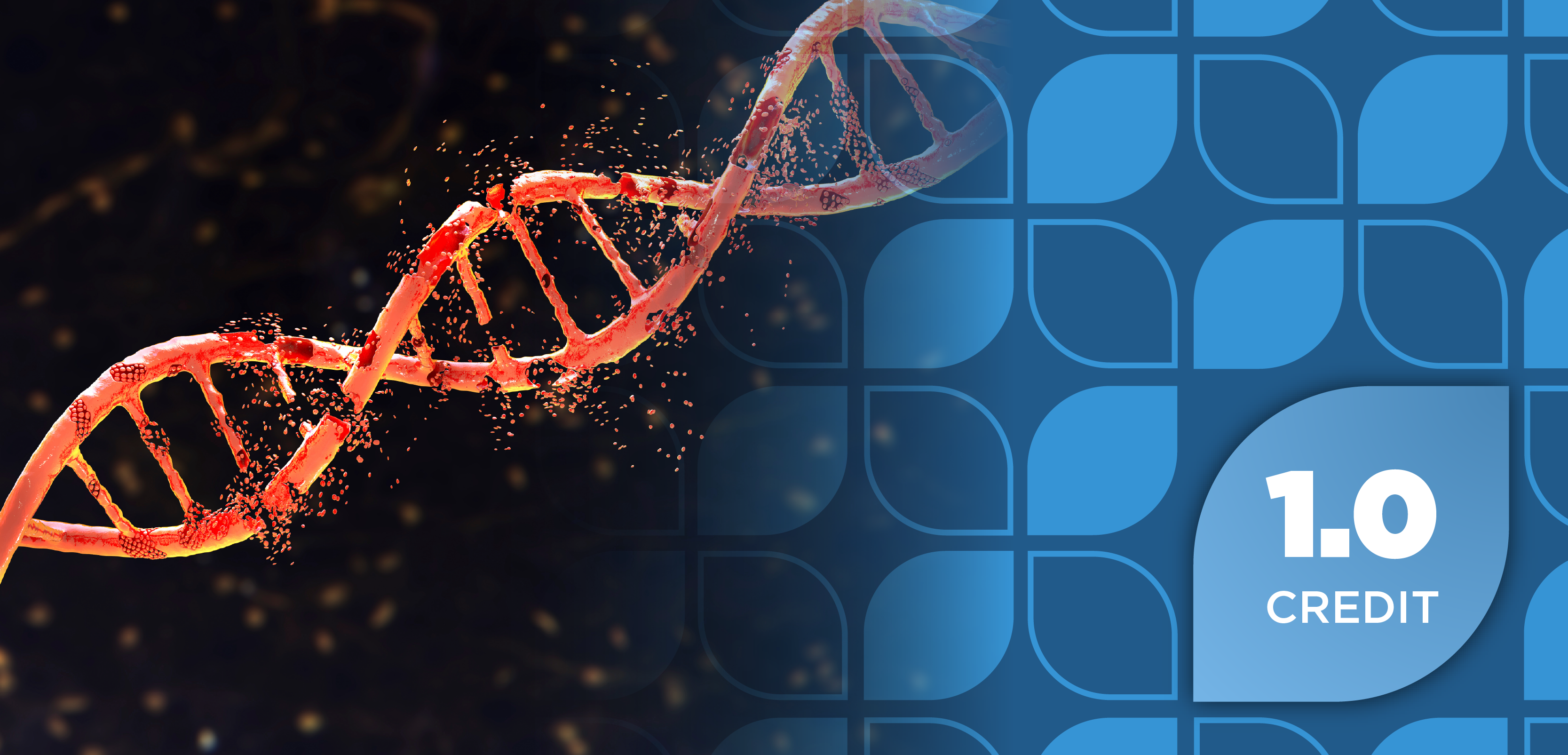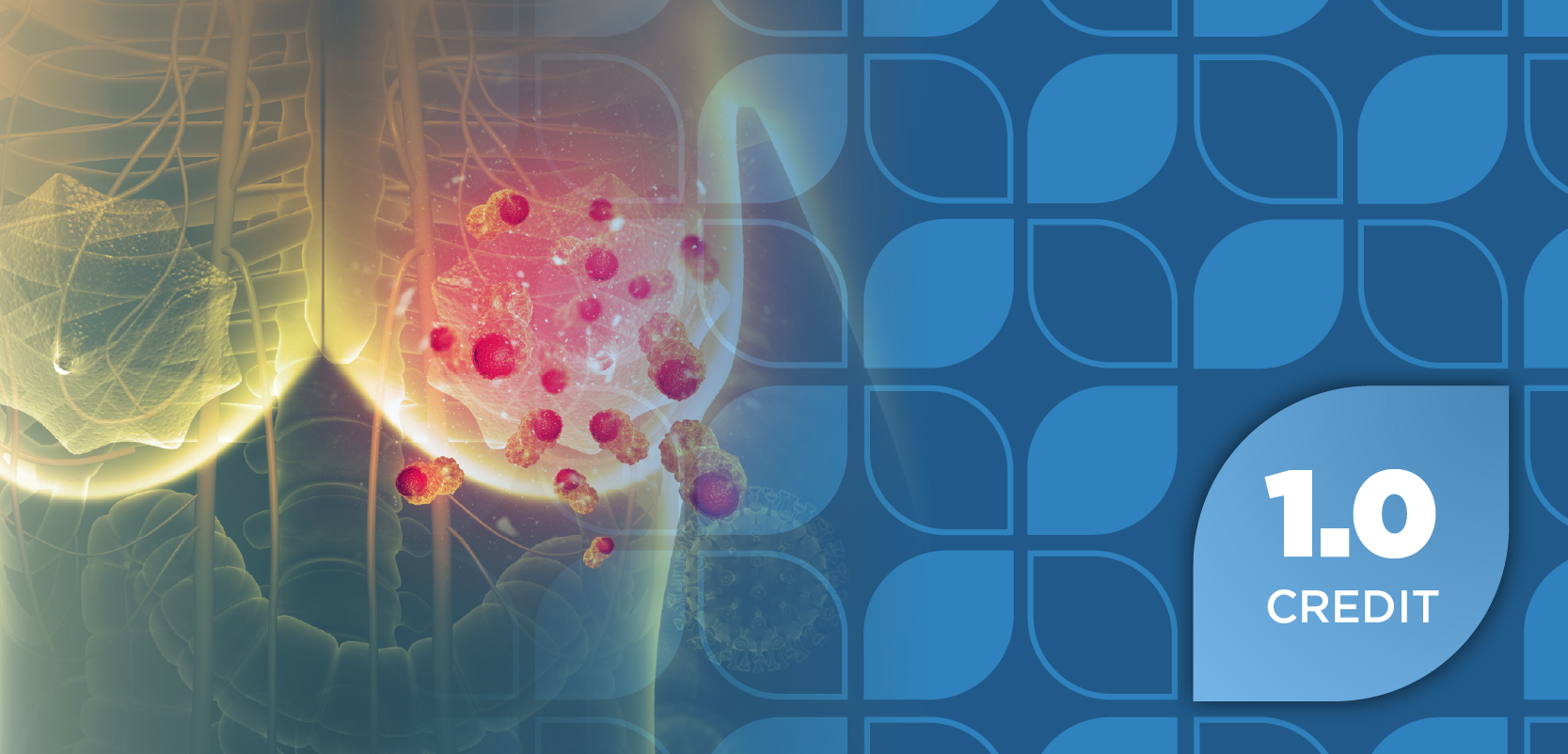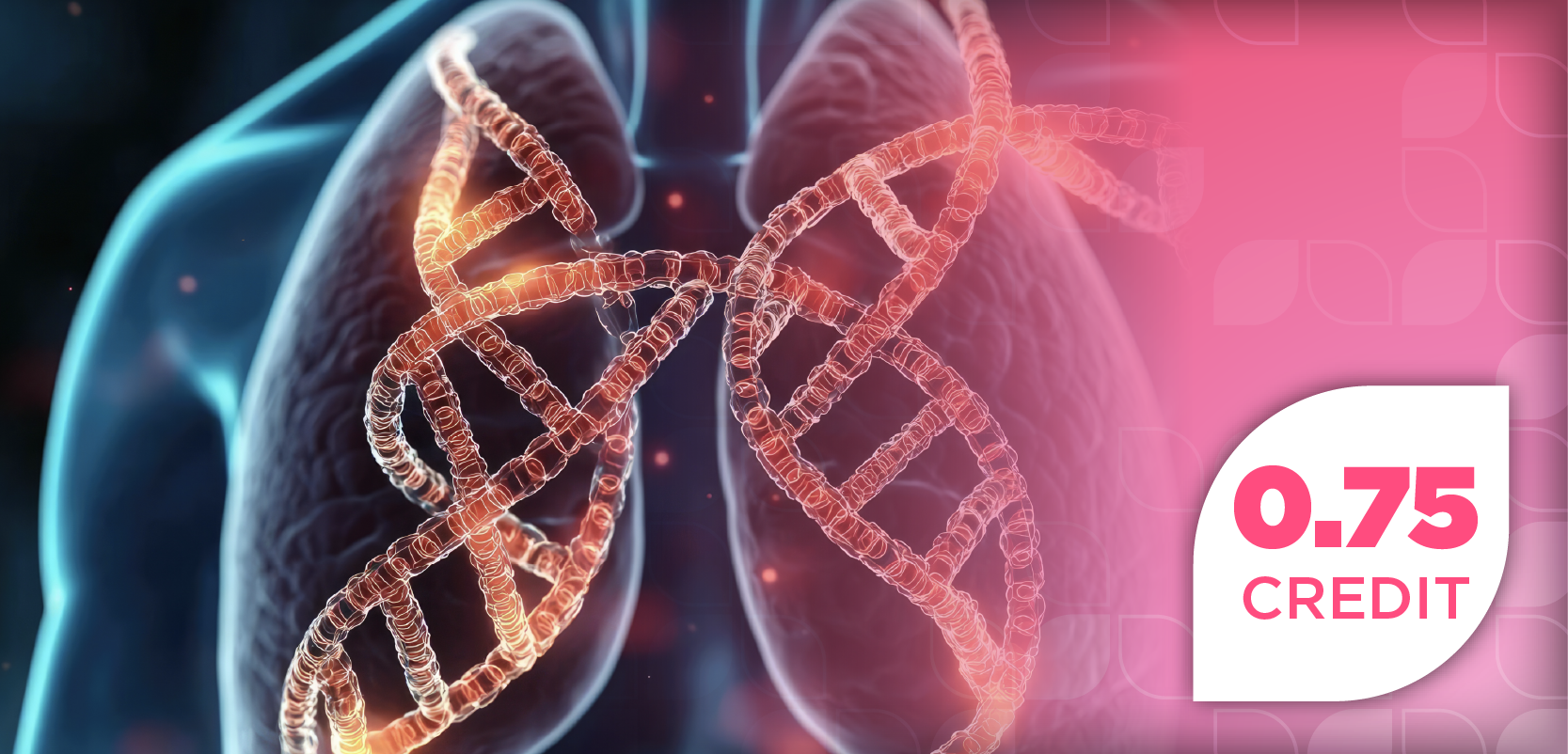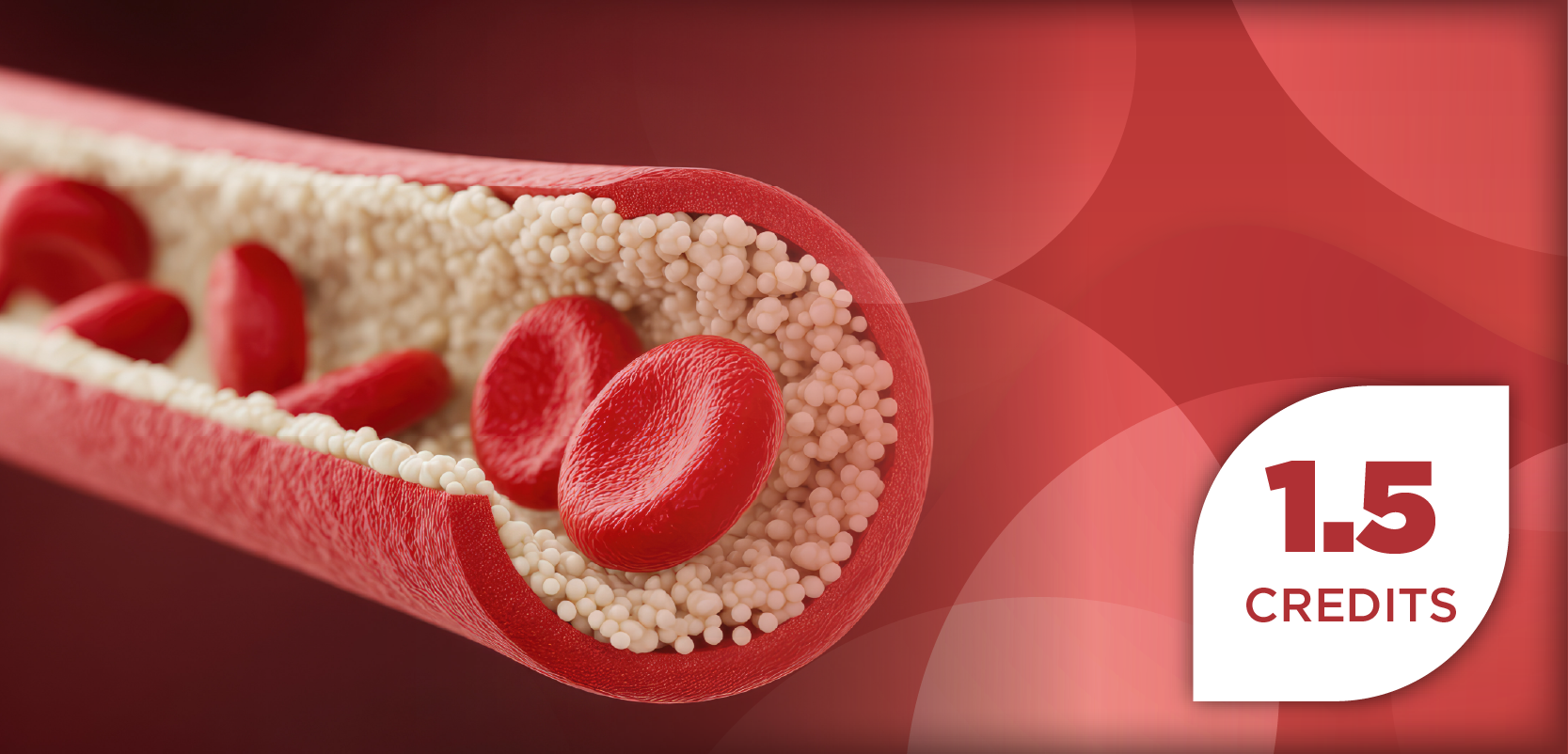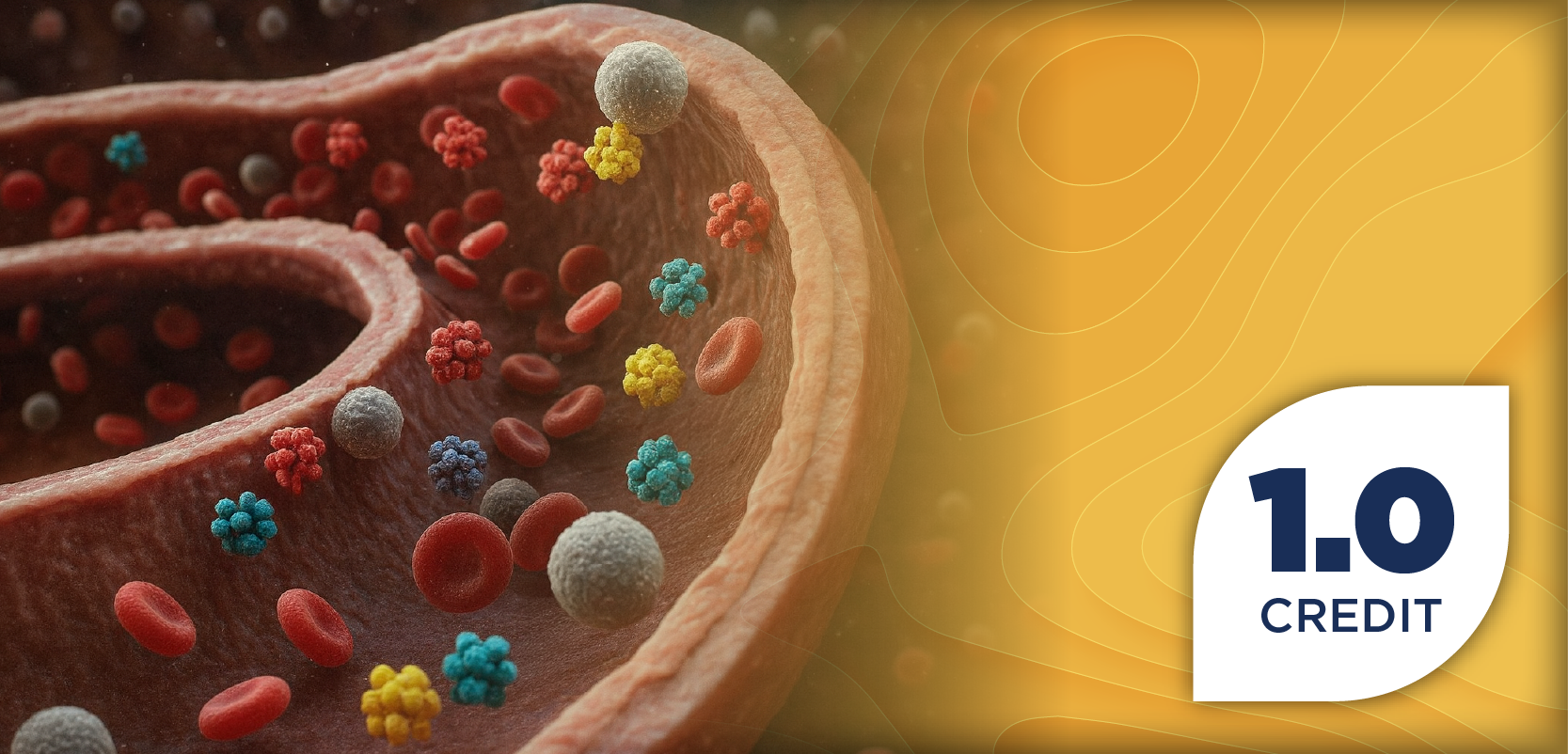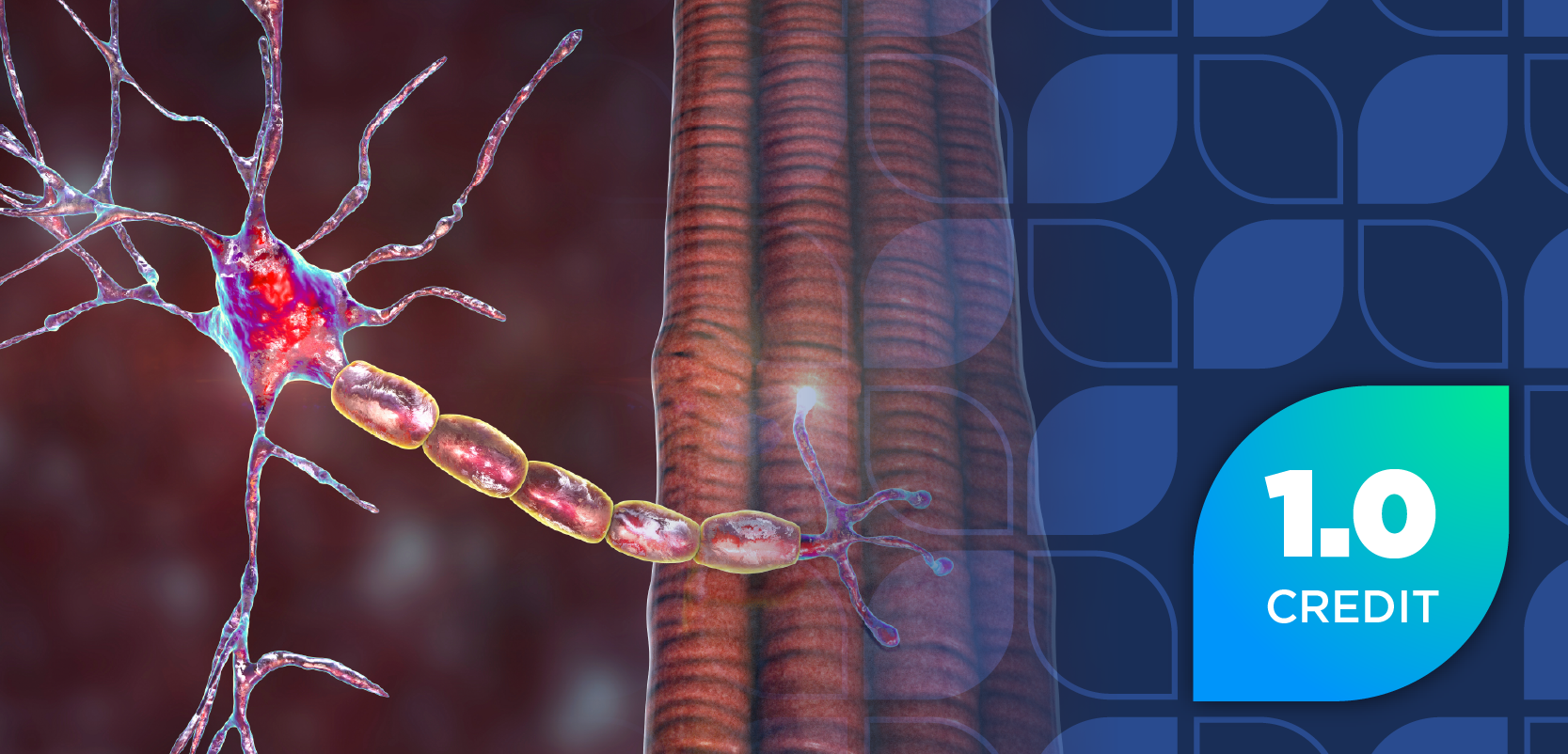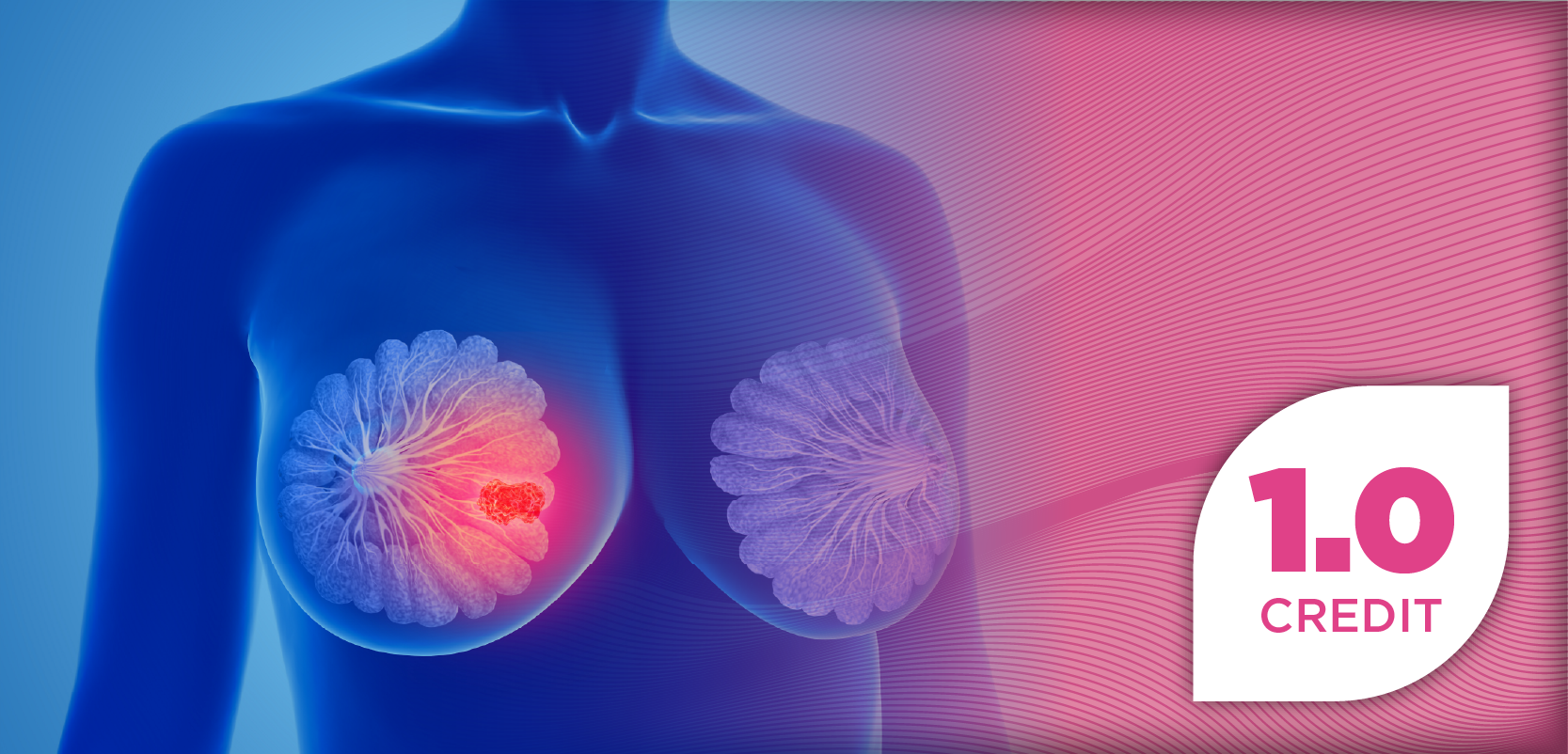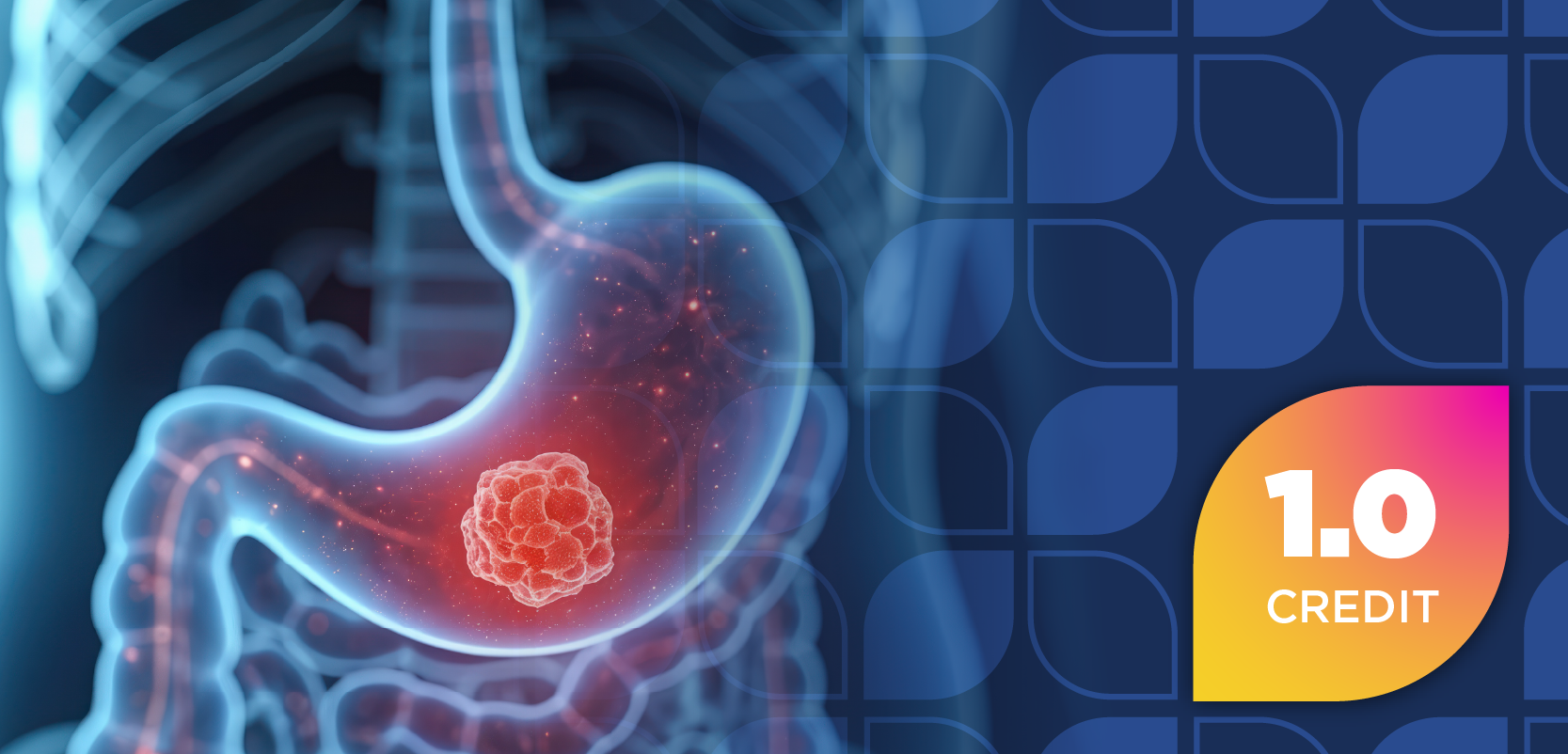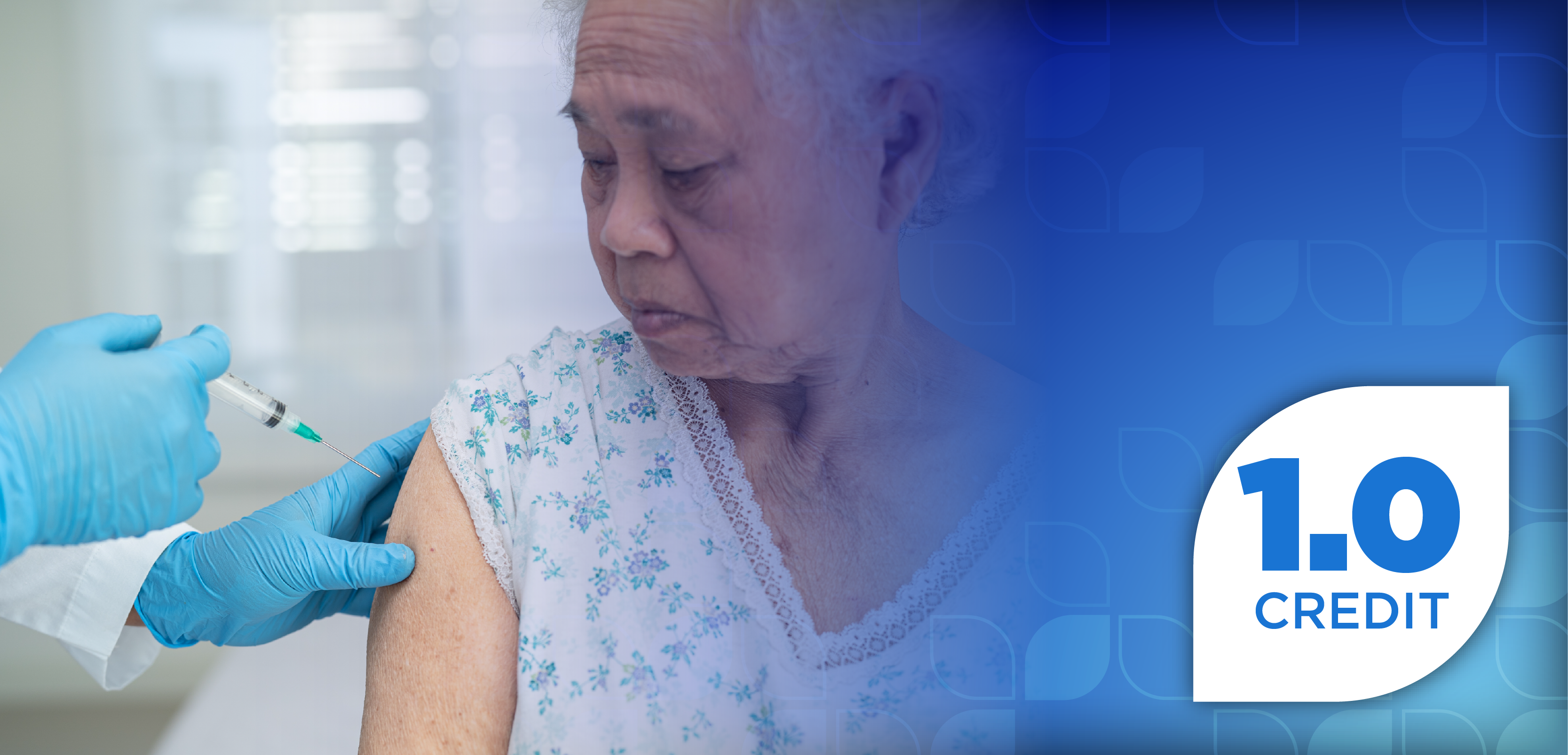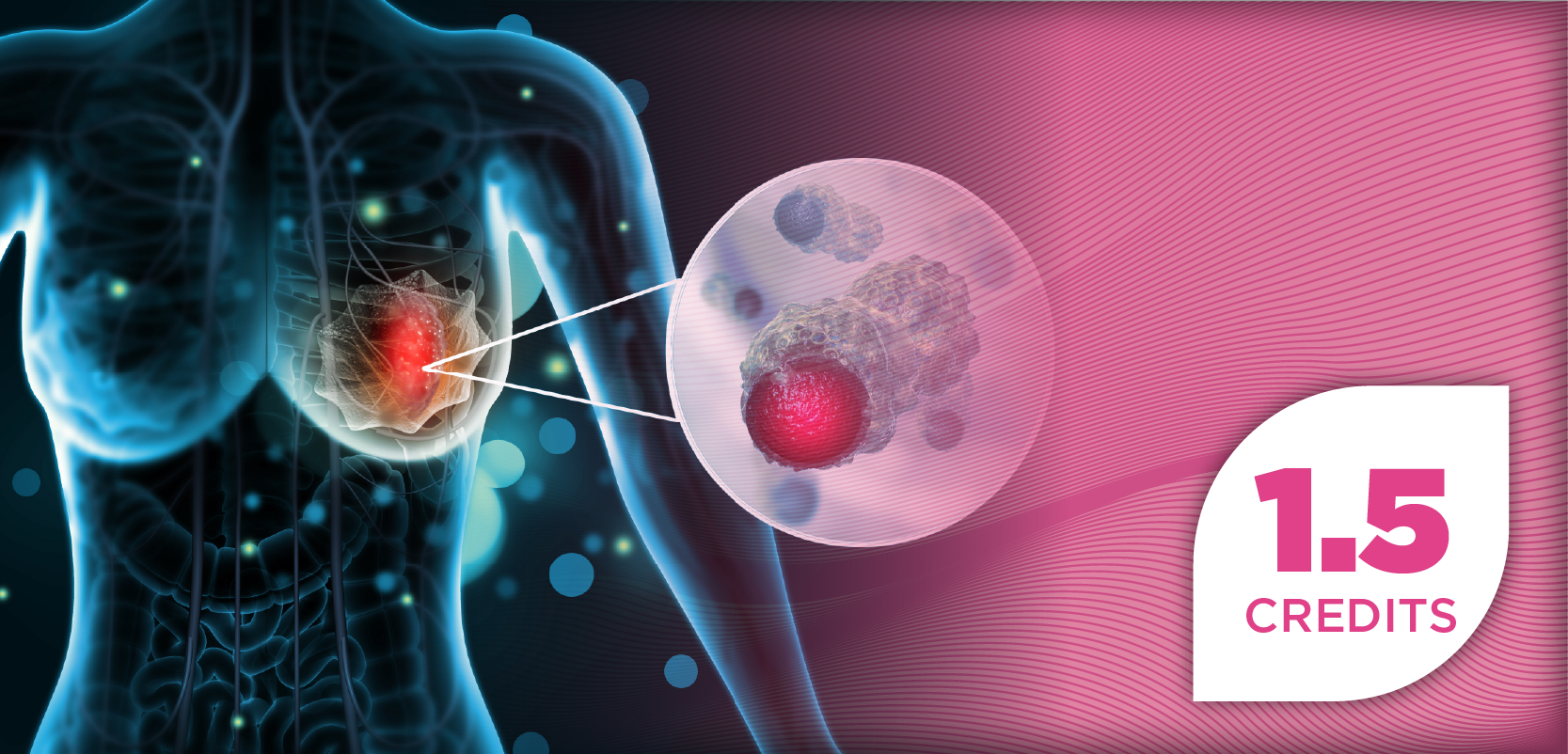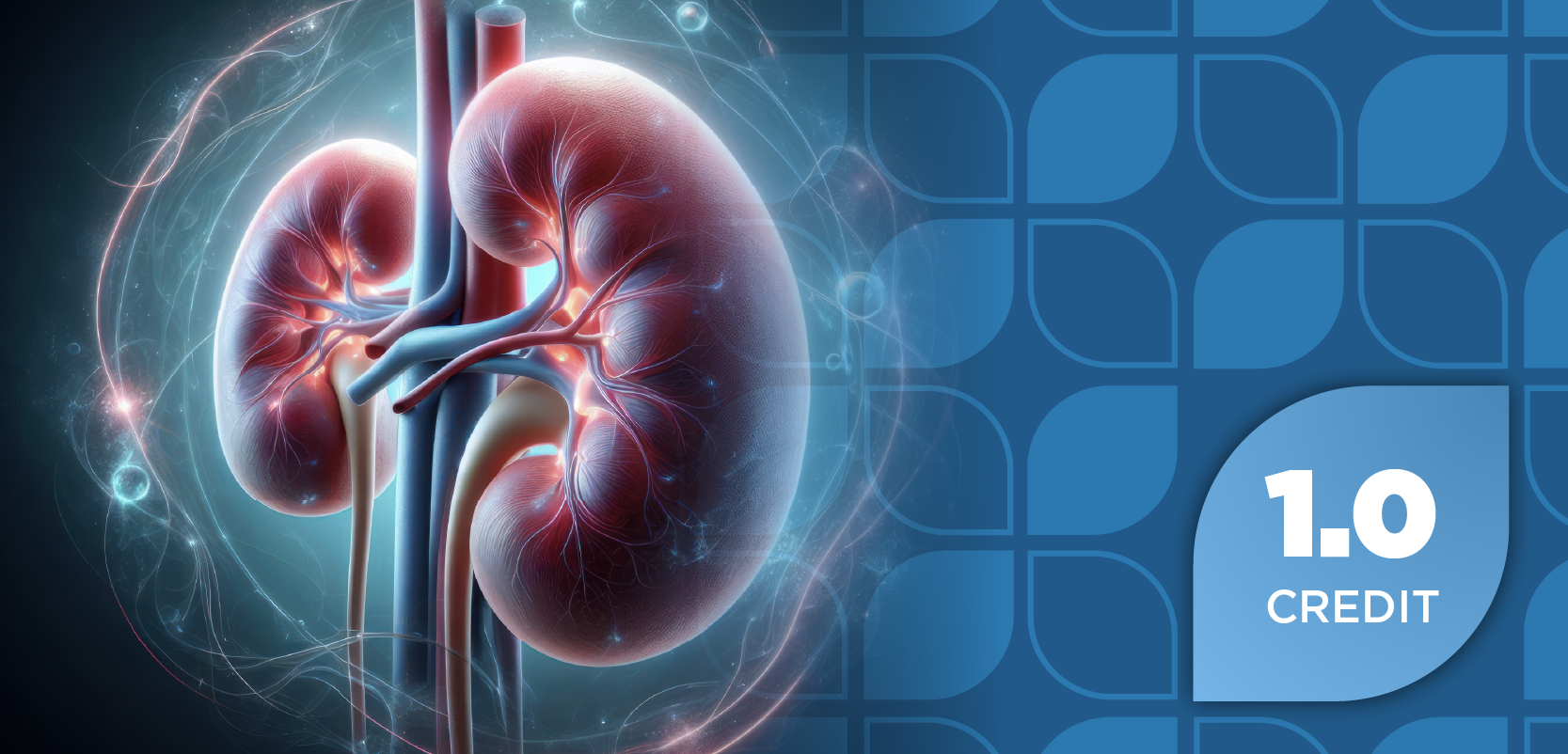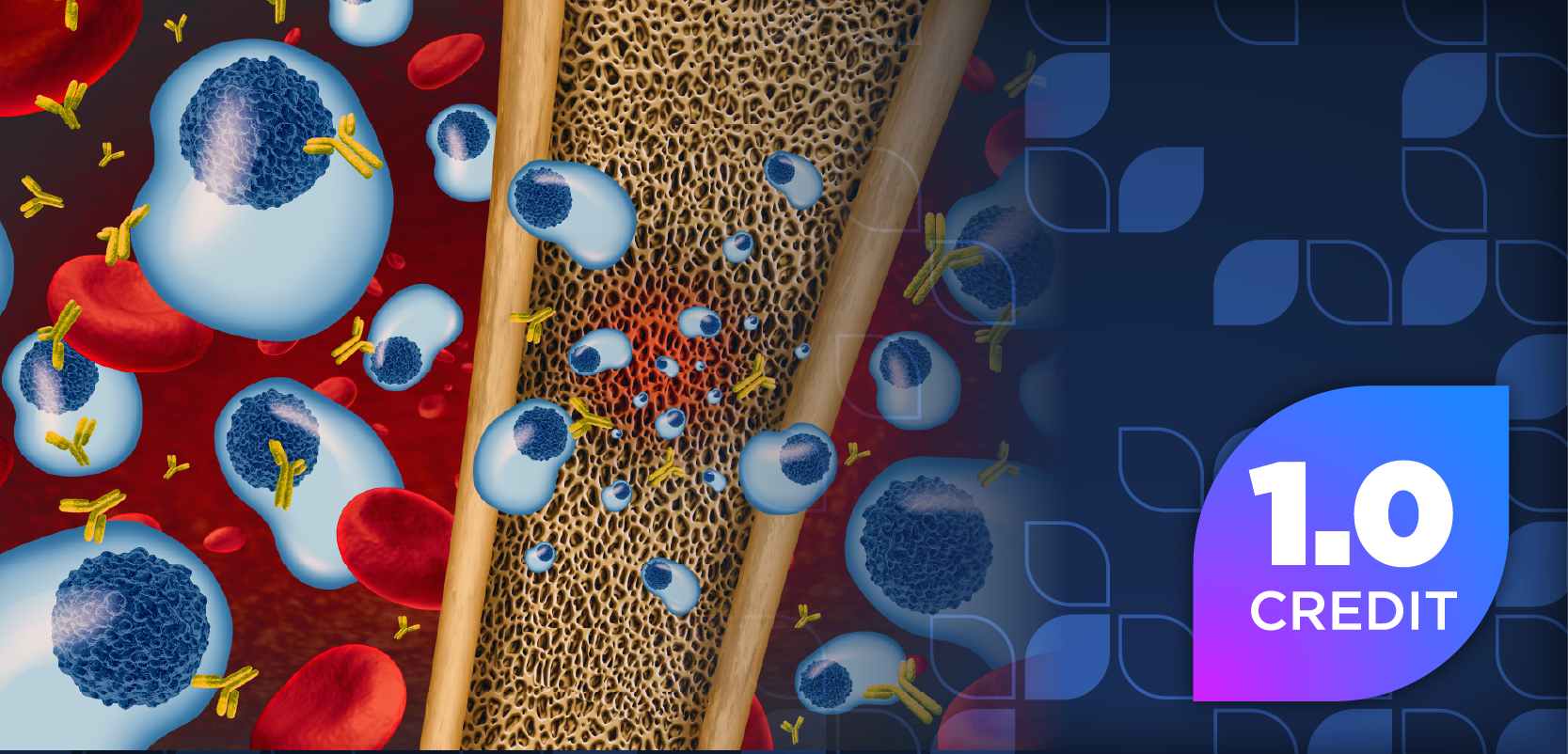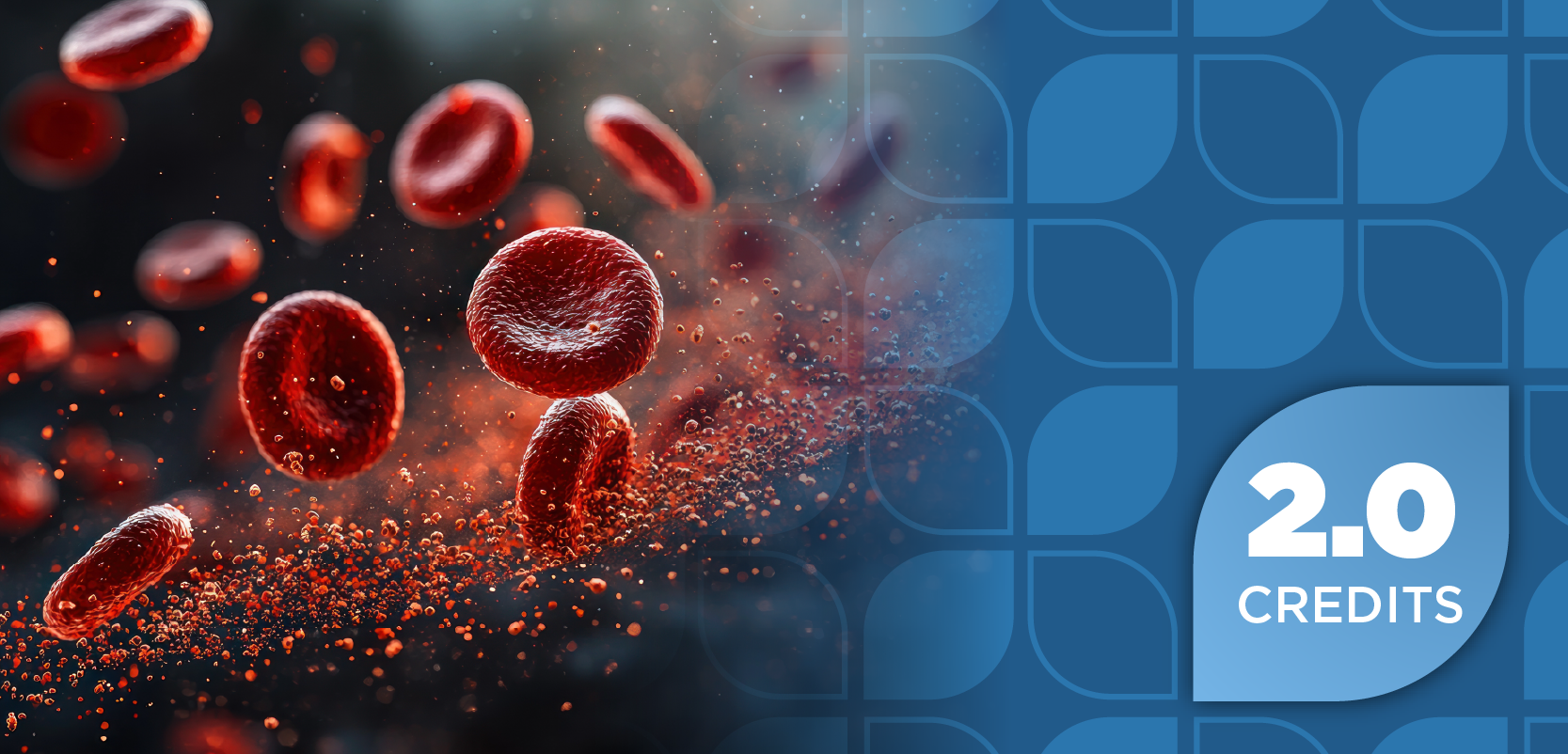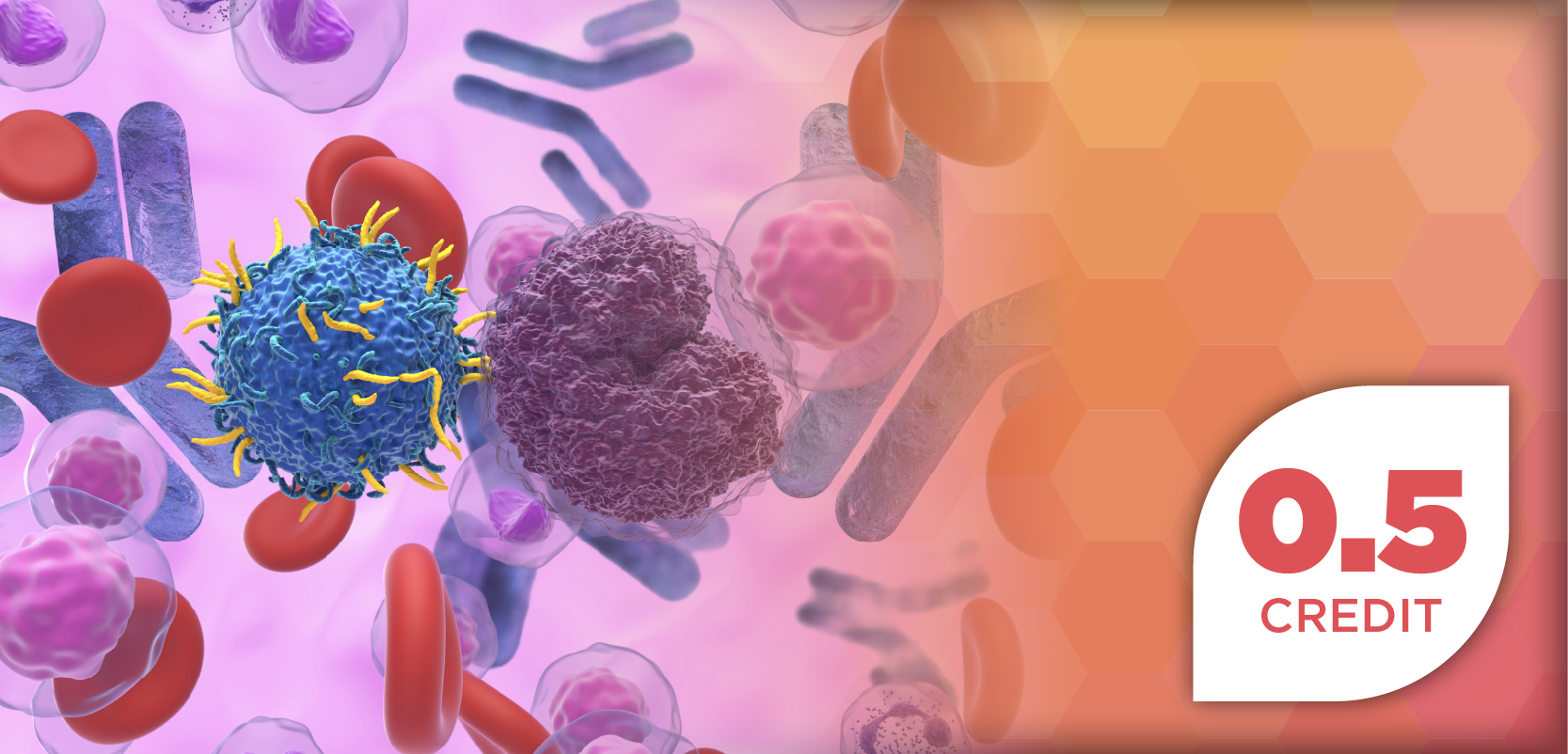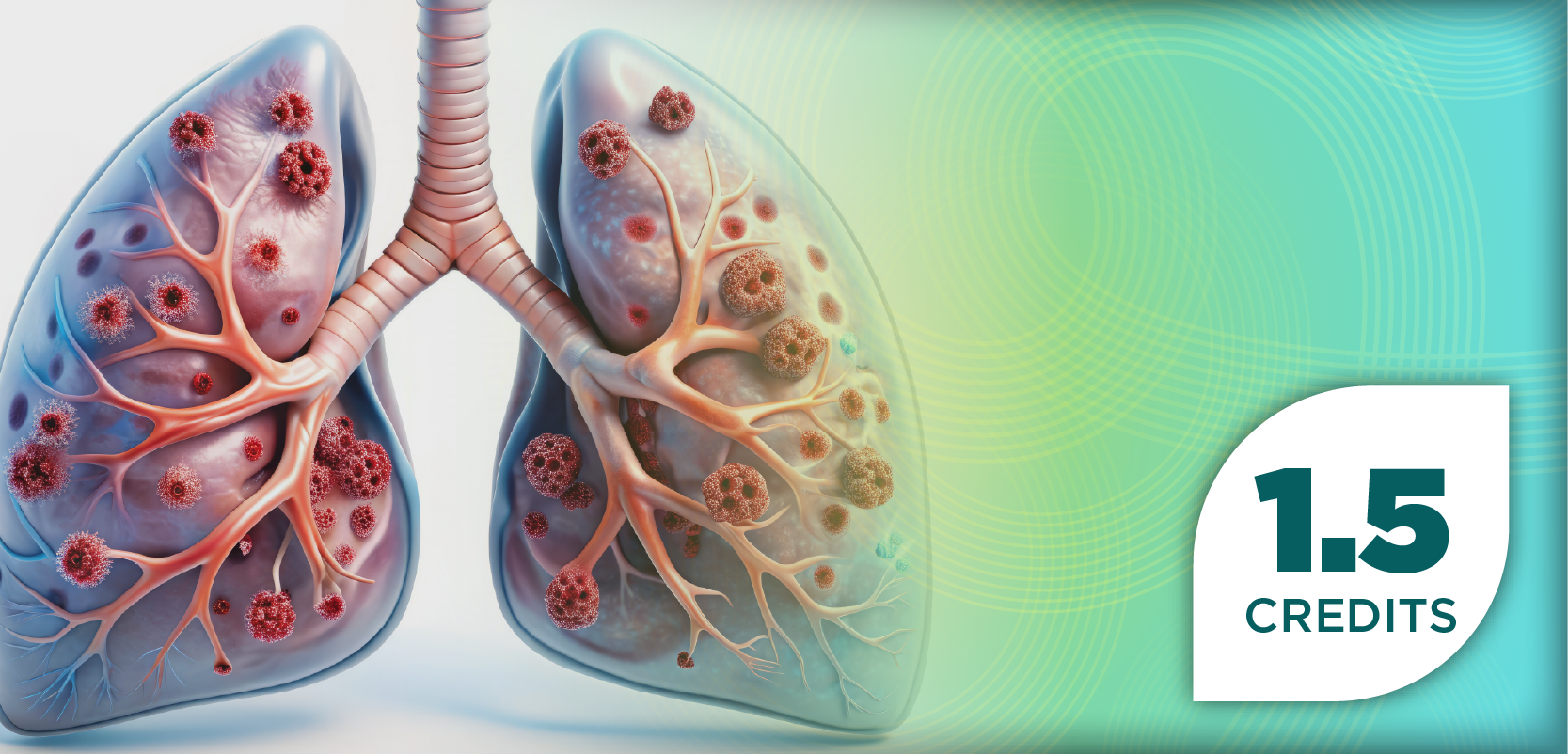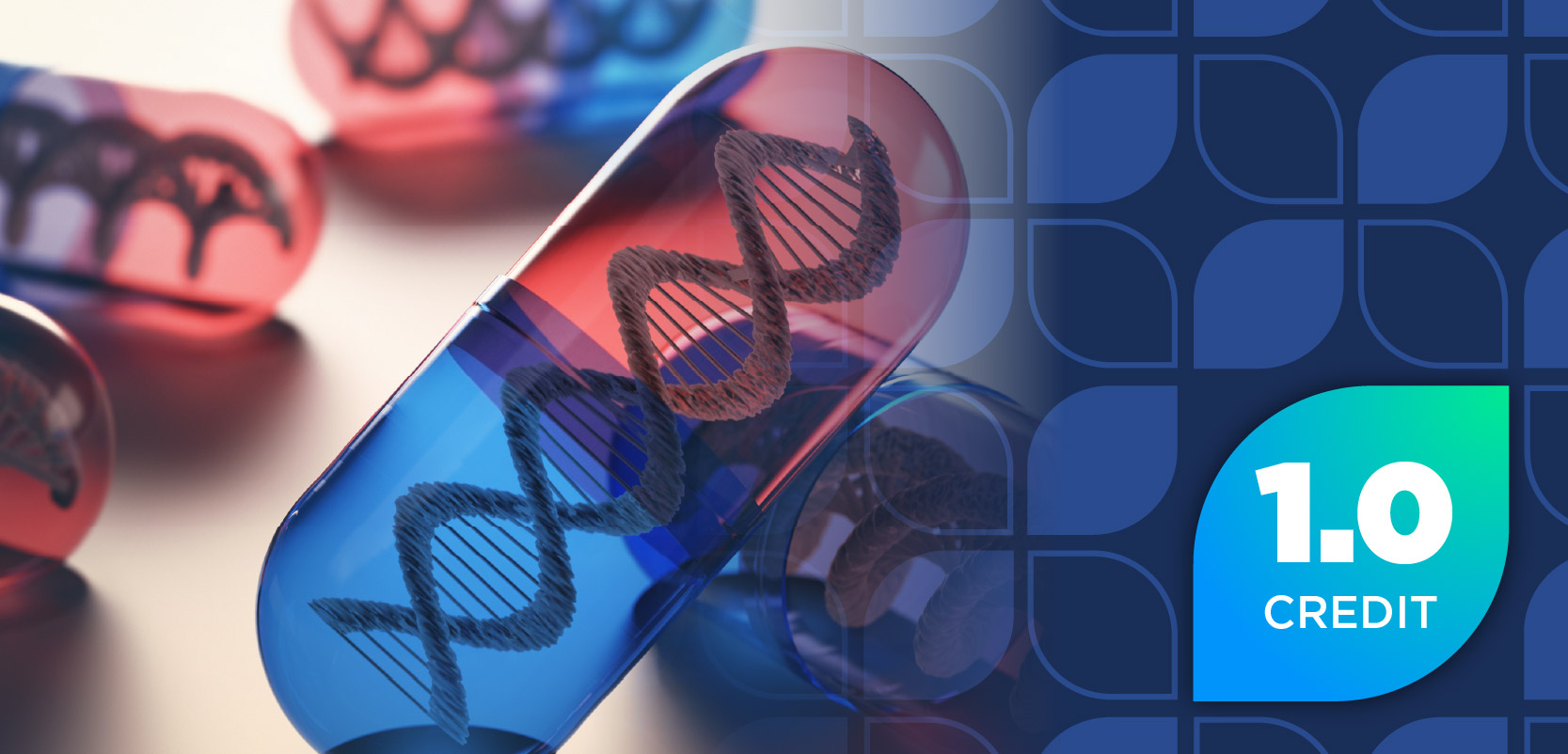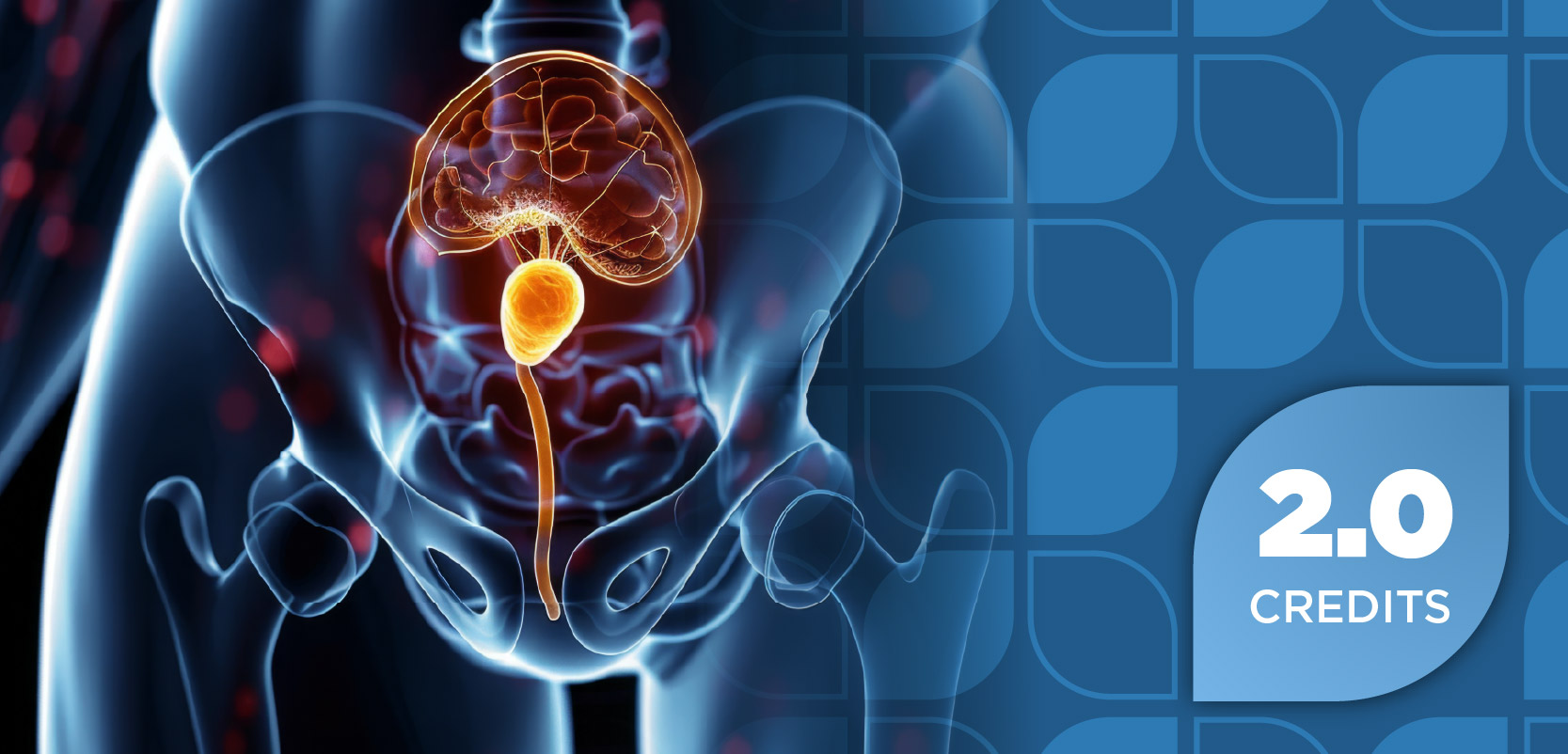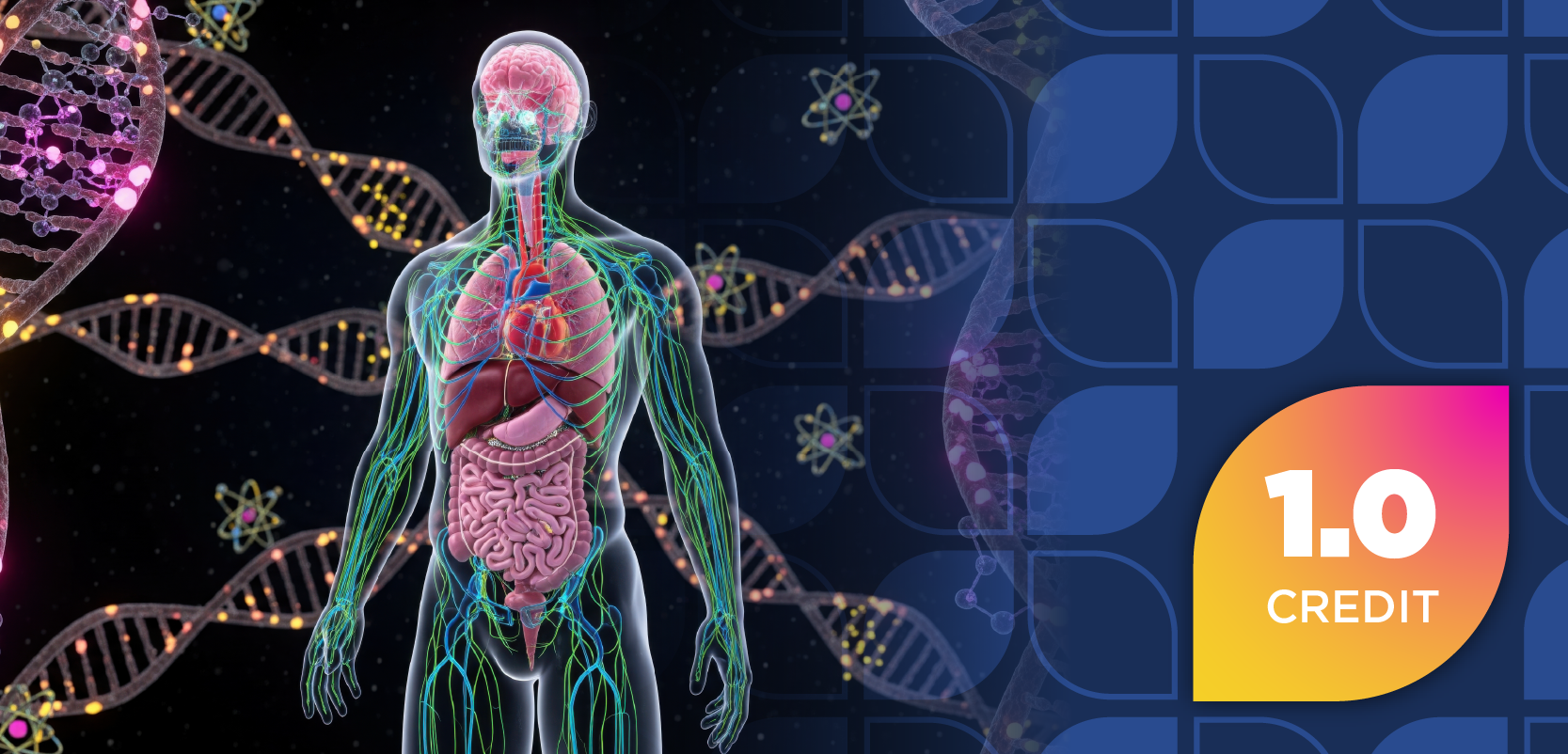
Pharmacy Practice in Focus: Oncology
- December 2023
- Volume 5
- Issue 8
Use of Recurrence Score Combined With Clinical, Genetic Factors Improves Prognostic Ability in HR+/ HER2– Early Breast Cancer
Key Takeaways
- The recurrence score (RS) is crucial for predicting adjuvant chemotherapy benefit in HR+ early breast cancer, validated across multiple trials.
- The ADAPT trial demonstrated improved prognostic ability by integrating RS with clinical and genetic factors in HR+/HER2- early breast cancer.
There is a prognostic impact of clinical and immunohistochemistry markers.
Across multiple randomized, prospective clinical trials, both retrospective analyses and prospective studies, only the recurrence score (RS) has been shown to be predictive of adjuvant chemotherapy benefit in both lymph node-negative and -positive, hormone receptor-positive (HR+) early breast cancer, explained Rick Baehner, chief medical officer, precision oncology, for Exact Sciences. Baehner coauthored a late-breaking abstract presented at the European Society for Medical Oncology Congress 2023, which was based on the results of the prospective ADAPT trial assessing risk and therapy success in HR+/HER2-negative (HER-) disease (NCT01779206).1
Several analyses have also demonstrated a prognostic impact of clinical and immunohistochemistry (IHC) markers in addition to genomic signatures in HR+/ HER2- early breast cancer, according to the study authors. However, what has remained unclear from the data in prior analyses is whether histology (eg, invasive lobular breast cancer [ILBC]) or other factors could provide further information.
“In these [prior clinical] trials, conventional clinical and pathologic factors, such as tumor grade and size, have also been shown to be prognostic of distant recurrence, consistent with results from multiple other breast cancer clinical trials,” Baehner said in an interview with Pharmacy Times. “For over a decade, [we have] worked with breast cancer investigators to integrate the recurrence score with independent, prognostic clinical and pathologic factors to provide more prognostic information to refine patients’ risk of recurrence estimates.”
During the ADAPT trial, the investigators focused on the impact of the use of the recurrence score on prognostics, combining both static and dynamic biomarkers to optimize adjuvant therapy in luminal early breast cancer. Based on the results of the prospective trial, the investigators found that the use of the recurrence score in combination with further clinical and genetic factors was able to improve prognostic ability. However, the investigators also noted that there is currently no treatment-independent prognostic model for patients with HR+/HER2- early breast cancer.
Notably, the investigators were able to show during the trial, for the first time, that there was a worse prognosis in the patient subgroup with high-risk ILBC, which is associated with distinct biological features. In this subgroup, lobular carcinoma was present in approximately 12% to 15% of patient cases with estrogen receptor (ER)-positive breast cancer, according to Baehner. However, Baehner noted that these analyses were exploratory and additional studies would be required to confirm the results.
During the trial, patients with pN0-1 with clinically high-risk HR+/HER2- early breast cancer (after 3 +/- cycles of preoperative endocrine therapy [ET]) were given ET alone, whereas those in the remaining high-risk patient cohort were randomized to the chemotherapy group. For prognostic scores containing clinical factors with and without mutational/copy number data, these data were derived retrospectively following a split into separate training and validation sets. To predict invasive disease–free survival (IDFS) in therapy subgroups, the investigators used the logistic least absolute shrinkage and selection operator regression and cross-validation methods. Additionally, the investigators adapted multivariate Cox models for the trial using a forward-backward selection approach to identify prognostic markers.
“The preoperative/neoadjuvant setting offers a unique opportunity for assessment of sensitivity to specific therapies. For HR+ disease, Ki-67 is a validated pharmacodynamic predictor for ET response,” Baehner said. “The goal of the ADAPT trial was to address individualization of adjuvant therapy in early breast cancer by using the 21-gene recurrence score, a well-validated prognosticator and a predictor of chemotherapy benefit in [patients with] HR+/HER2- breast cancer in combination with an early response predictor.”
In total, 4491 patients (n = 2246 treated with ET and n = 2245 treated with chemotherapy) were included in the trial. Among all patients, tumor and nodal (T/N) stage, recurrence score, and progesterone receptor (PR) expression were prognostic for IDFS (Cox model). However, among patients treated with ET, investigators noted that only T stage, recurrence score, and ER expression by the reverse transcription-polymerase chain reaction assay were significant using the Cox analysis, but prognostic score could not be determined.
In patients treated with chemotherapy, a prognostic score consisting of T/N stage (grade 2-3 vs grade 1), RS, ILBC, and PR expression entered the model, but not the IHC4 score. In this patient cohort, the investigators found that a prognostic score consisting of T/N stage, age (≤ 50, > 50 years), RS, ILBC, PR expression, and baseline and post-ET Ki67 yielded a receiver operating characteristic/area under the curve of 66% in the validation set. ILBC was also associated with a lower recurrence score than invasive ductal carcinoma (recurrence score > 25, 5.62% vs 19.37%). Further, patients with high-risk chemotherapy-treated ILBC had more frequent ERBB2 expression (11.6% vs 2.5%) and a lower frequency of CDH1 mutations (60.5% vs 70.7%). Notably, only CCND1 amplification was associated with worse IDFS in the next-generation sequencing subgroup (n = 584).
Based on their research, Baehner noted that his team had developed an educational tool called RSClin that estimates the 10-year risk of distant recurrence and the absolute benefit of chemotherapy in HR+/HER2-, lymph node–negative early breast cancer.2
“RSClin integrates RS with tumor grade, tumor size, and age using a patient-specific meta-analysis including 10,004 women with [HR+/HER2-] and nodenegative breast cancer who received ET alone in the National Surgical Adjuvant Breast and Bowel Project B-14 [n = 577] and TAILORx [n = 4854; NCT00310180] trials or plus chemotherapy in TAILORx [n = 4573],” Baehner said.
According to Baehner, RSClin can provide more prognostic information for distant recurrence than recurrence score or clinical-pathological factors alone.
“We will be updating the RSClin analyses in lymph node-negative patients at the San Antonio Breast Cancer [Symposium] this December to include additional outcome data, including analyses of RSClin and the prediction of late recurrence [recurrences that occur after 5 years and that are very common in HR+ breast cancer],” Baehner said.
References
1. Gluz O. LBA24 - multiparametric prognostic score in early HR+/ HER2- breast cancer: impact of recurrence score, clinical-pathological factors, gene mutations and histology. Presented at: European Society for Medical Oncology Congress 2023; October 23, 2023; Madrid, Spain. Accessed November 1, 2023. https://oncologypro.esmo.org/meeting-resources/esmo-congress/multiparametric-prognostic-scorein-early-hr-her2-breast-cancer-impact-of-recurrence-score-clinicalpathological-factors-gene-mutations-and-hi
2. Sparano JA, Crager MR, Tang G, Gray RJ, Stemmer SM, Shak S. Development and validation of a tool integrating the 21-gene recurrence score and clinical-pathological features to individualize prognosis and prediction of chemotherapy benefit in early breast cancer. J Clin Oncol. 2021;39(6):557-564. doi:10.1200/JCO.20.03007
Articles in this issue
about 2 years ago
Palliative Care Is Not (Necessarily) the Endabout 2 years ago
Exploring the Landscape of Gene TherapyNewsletter
Stay informed on drug updates, treatment guidelines, and pharmacy practice trends—subscribe to Pharmacy Times for weekly clinical insights.


